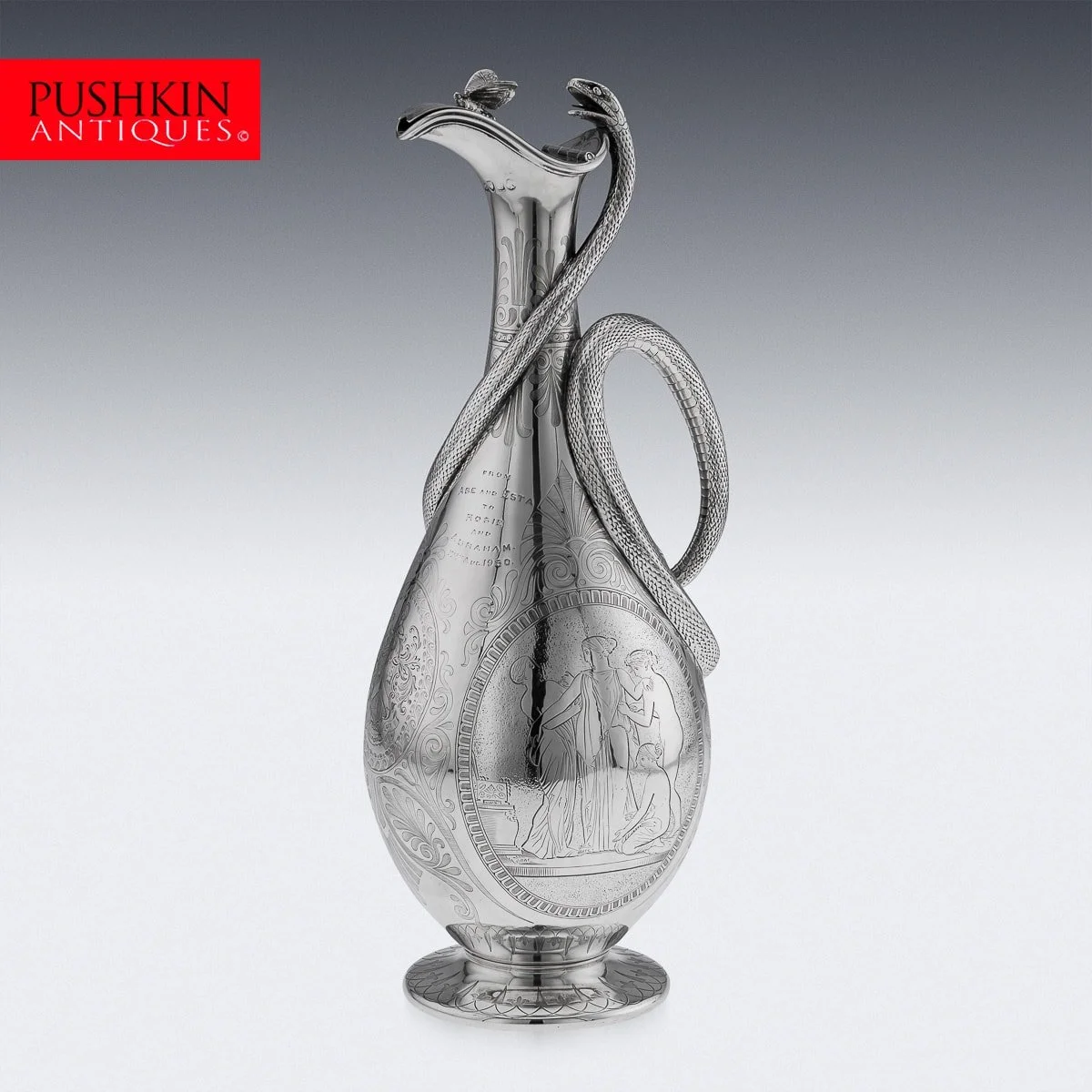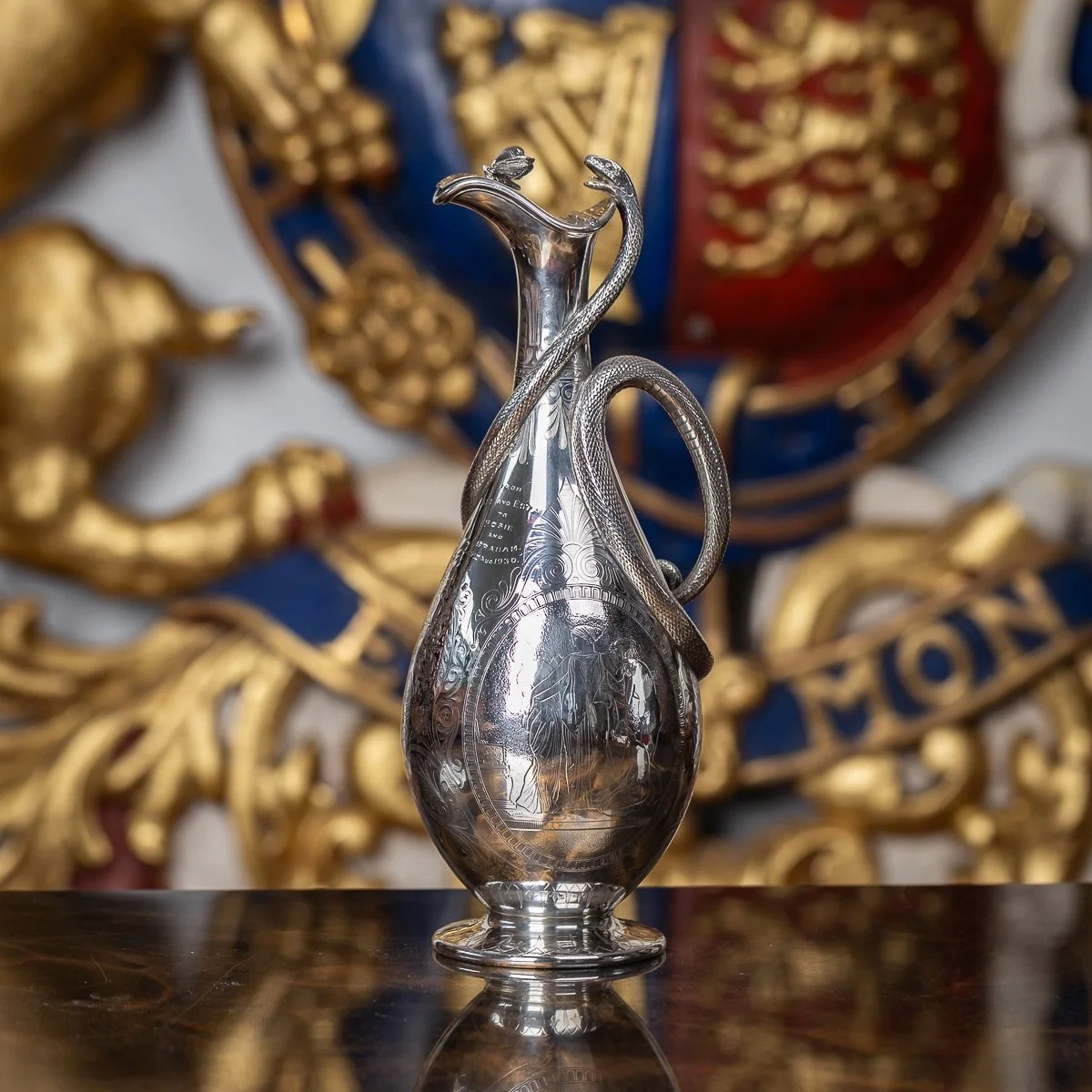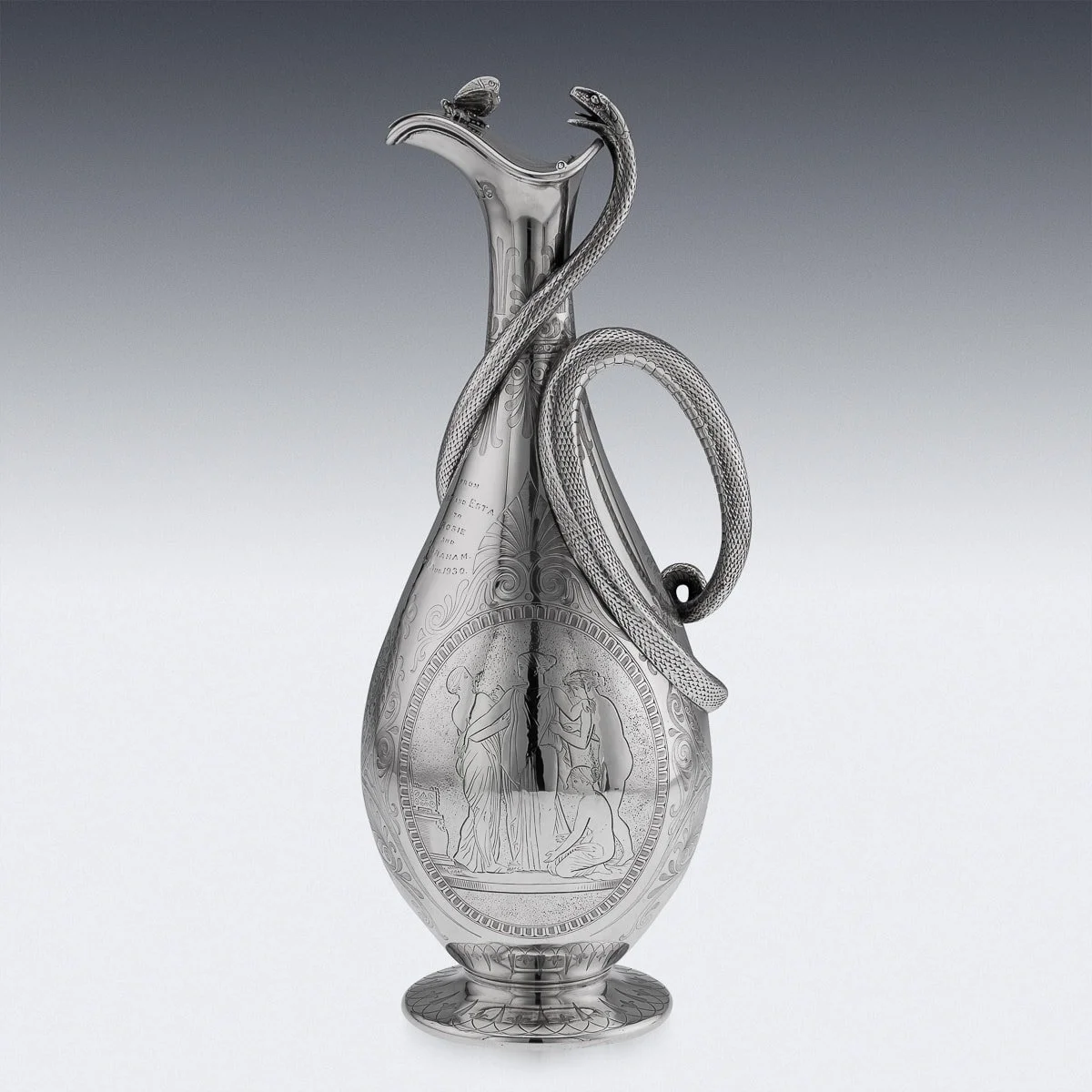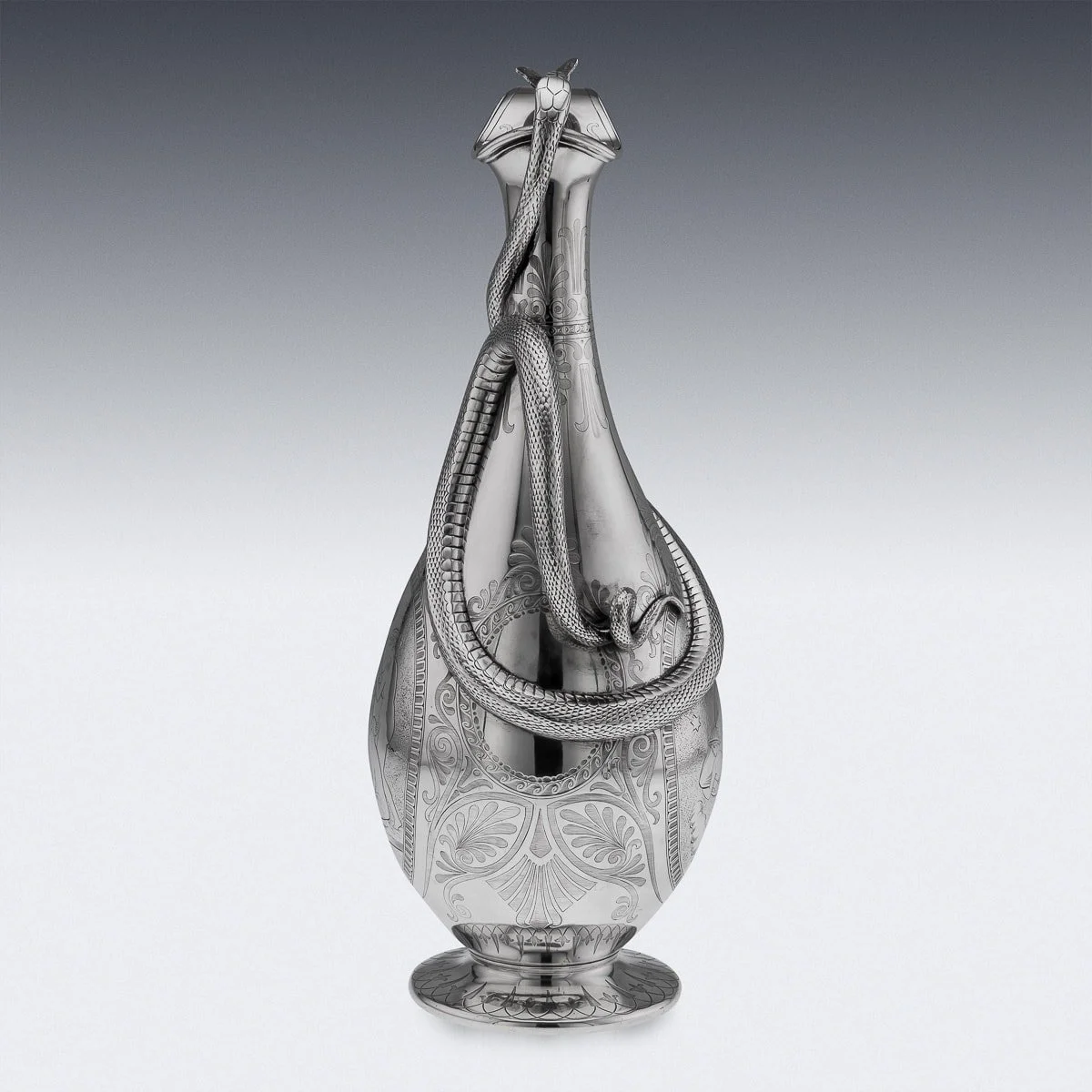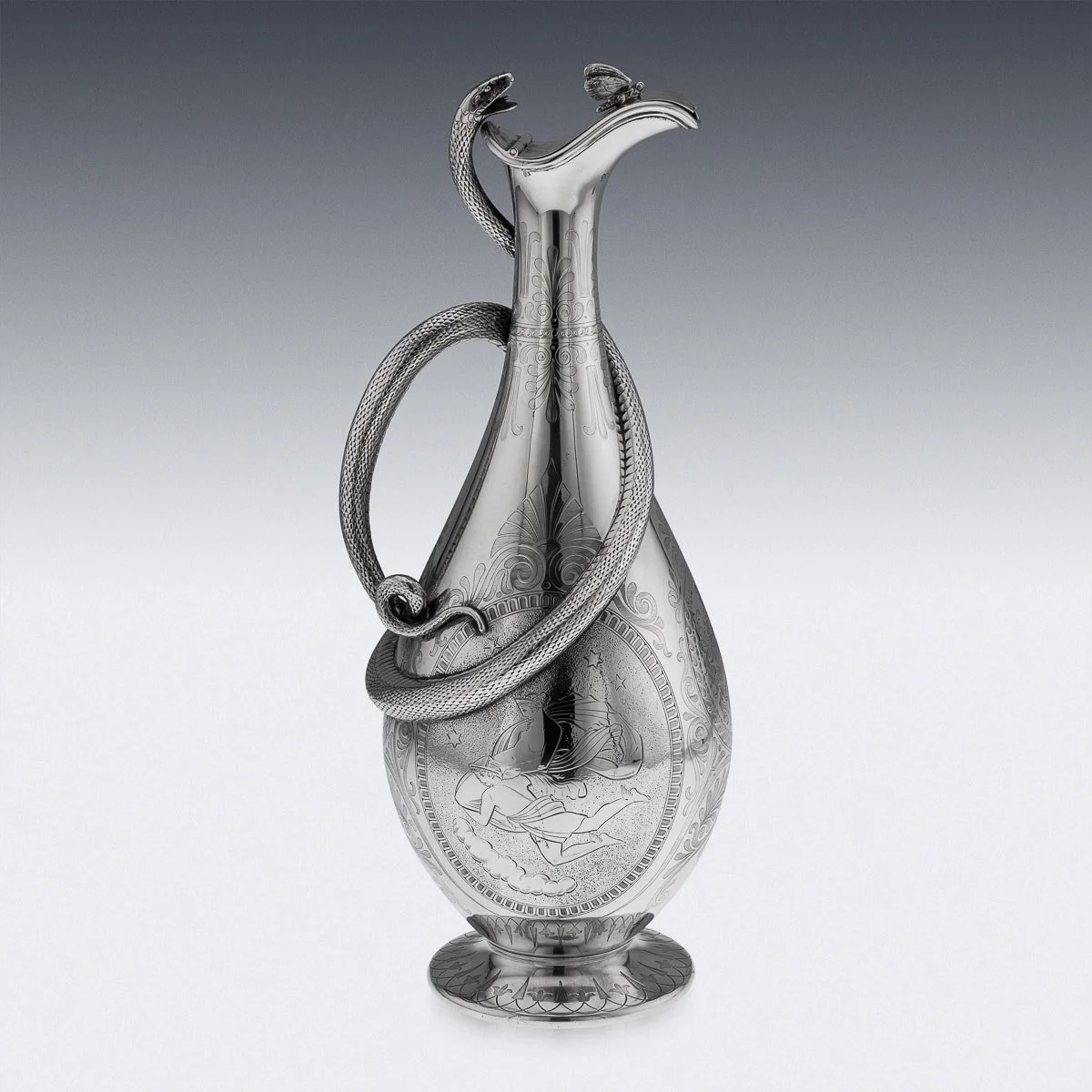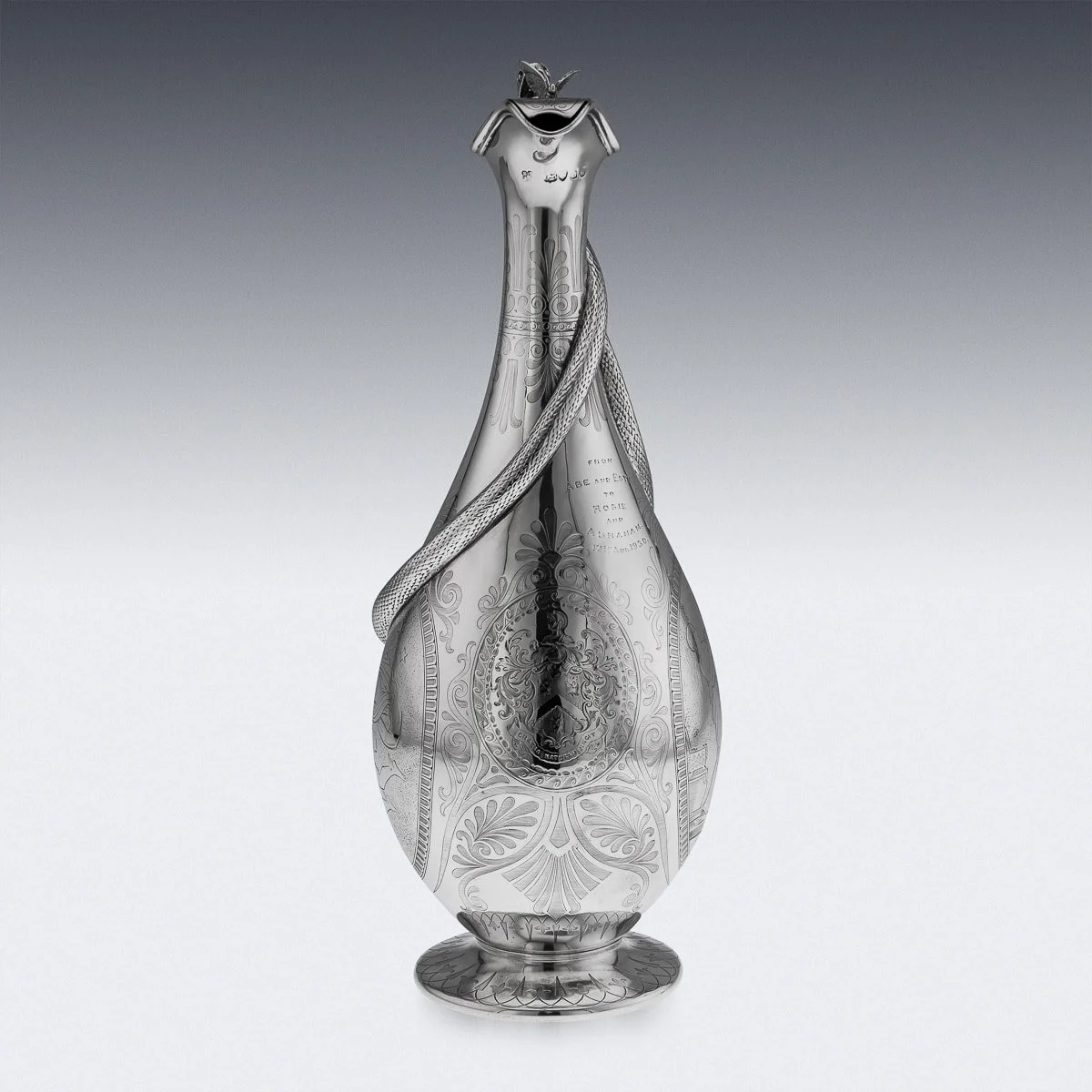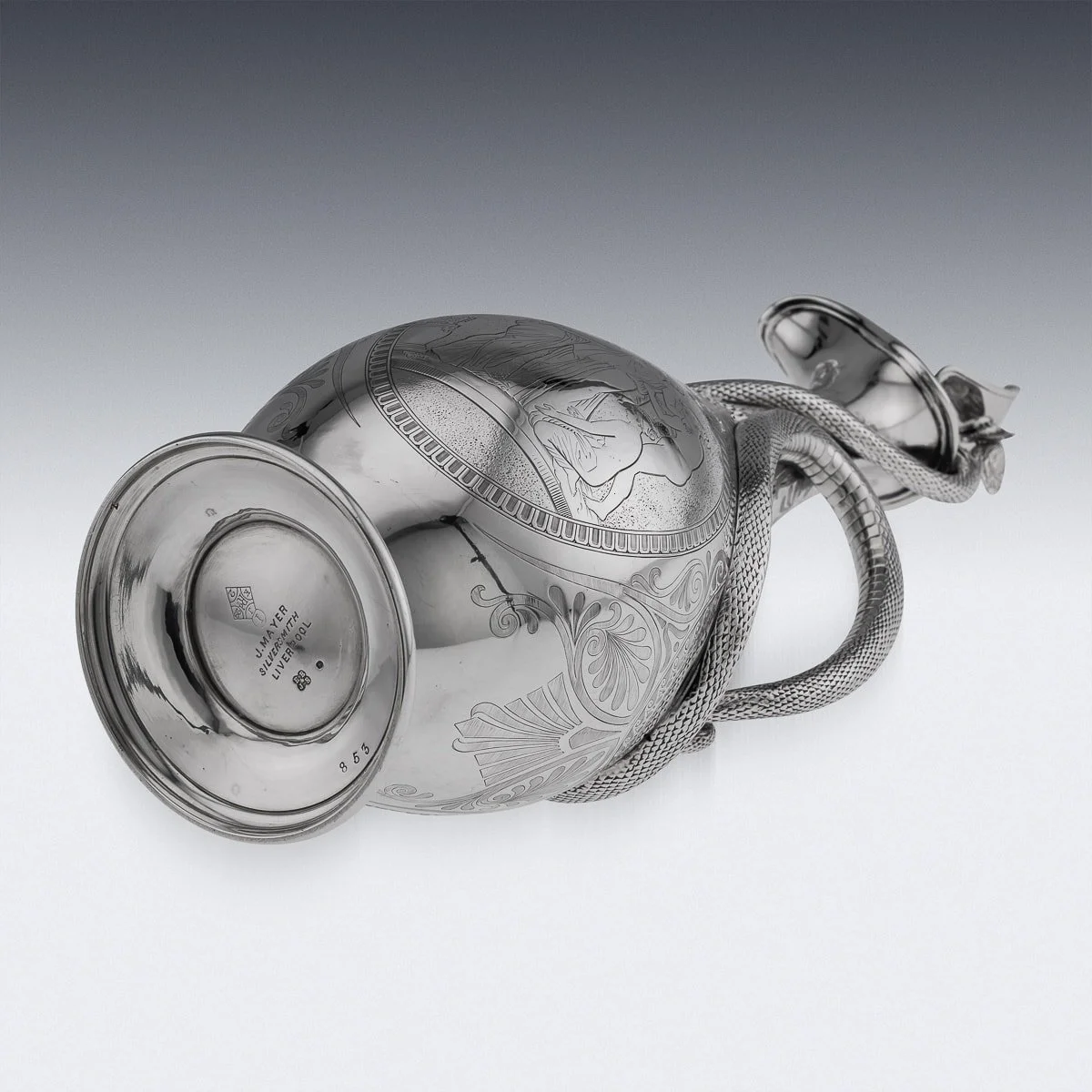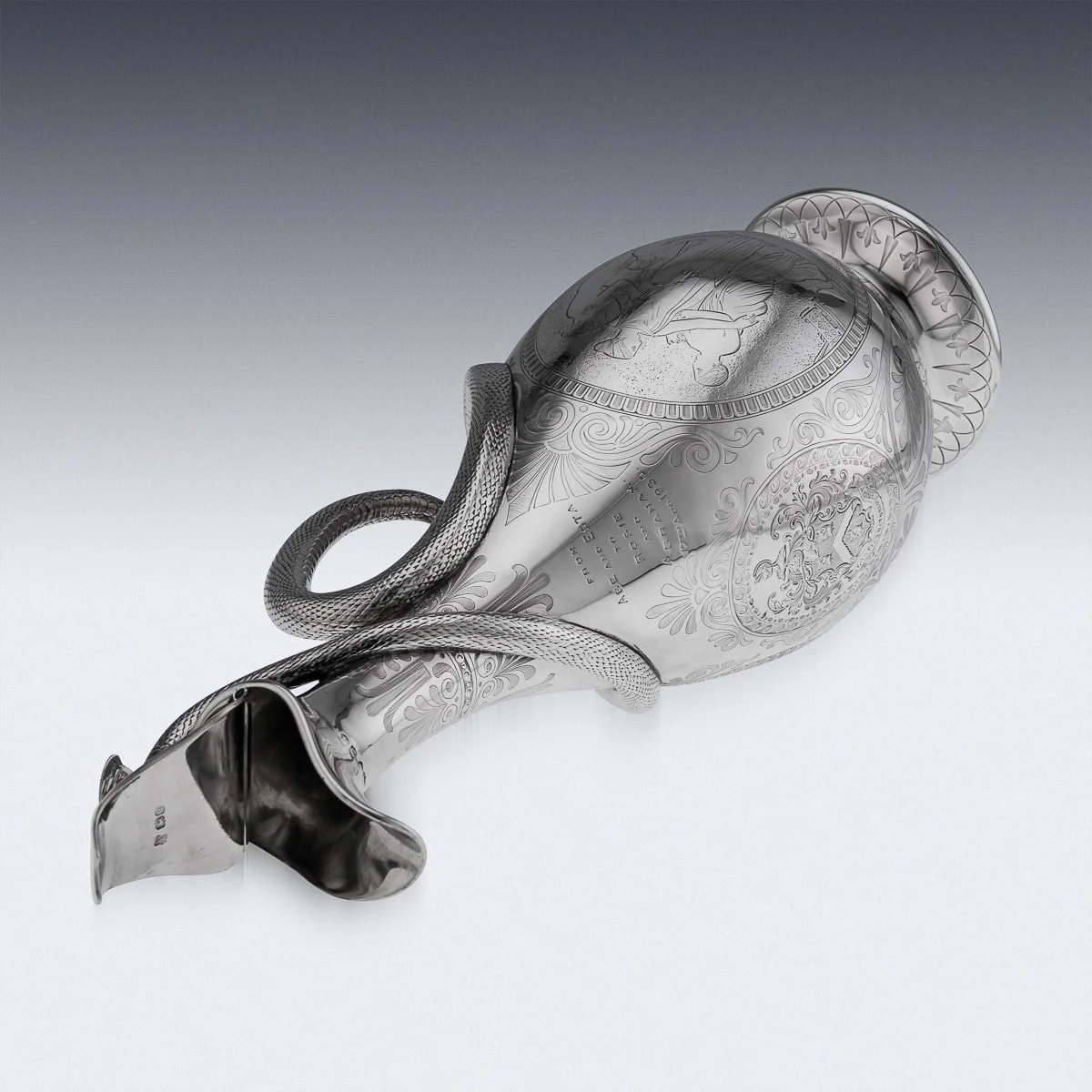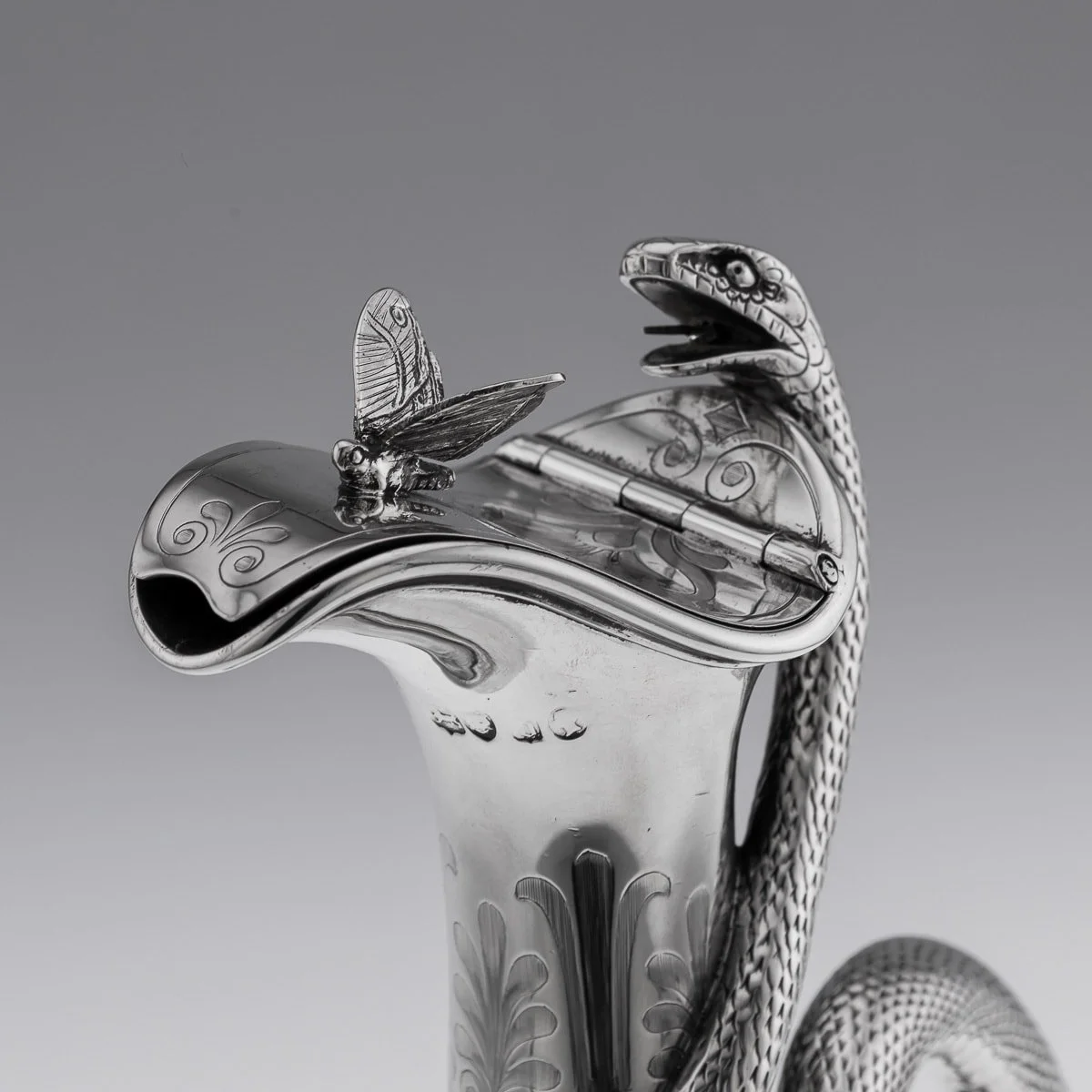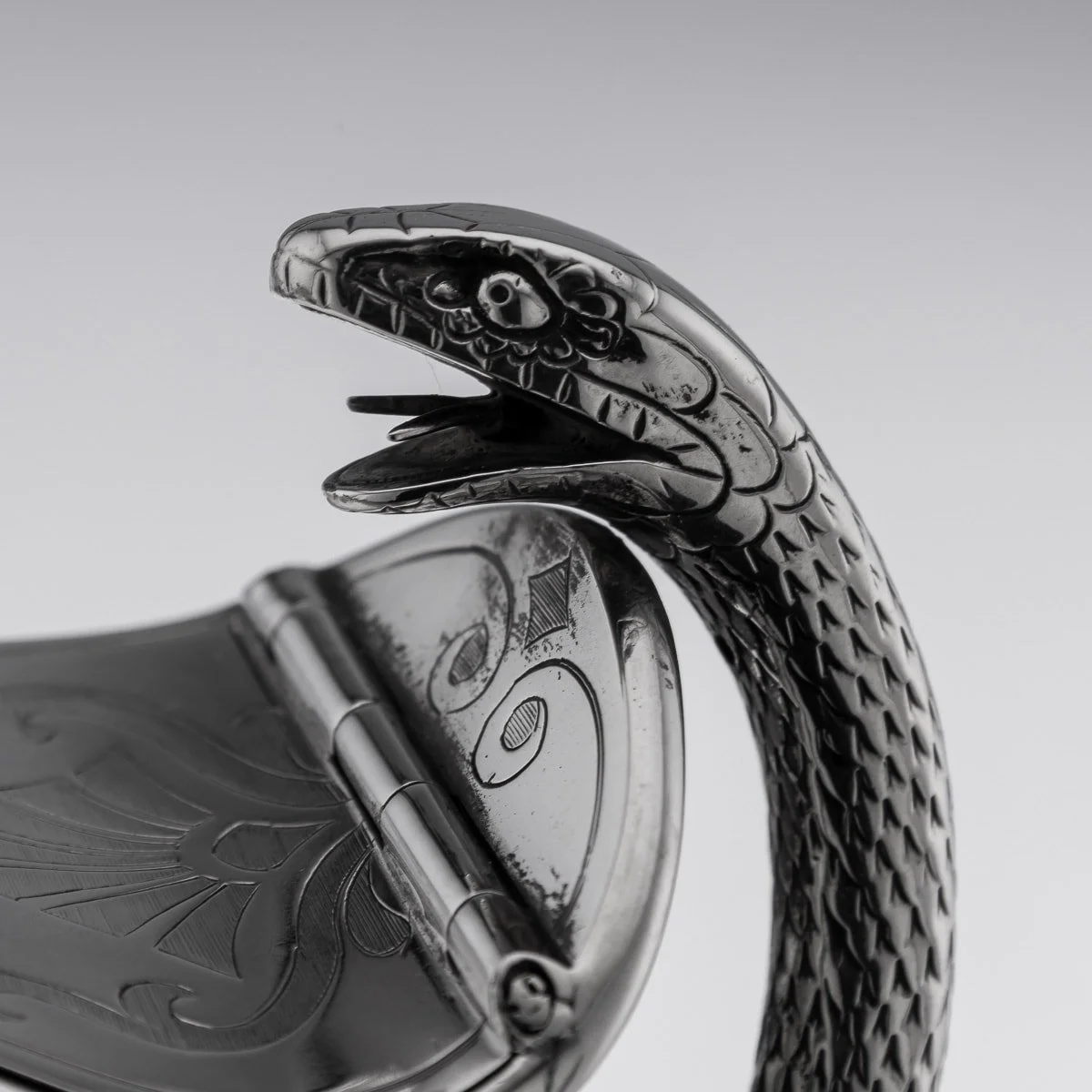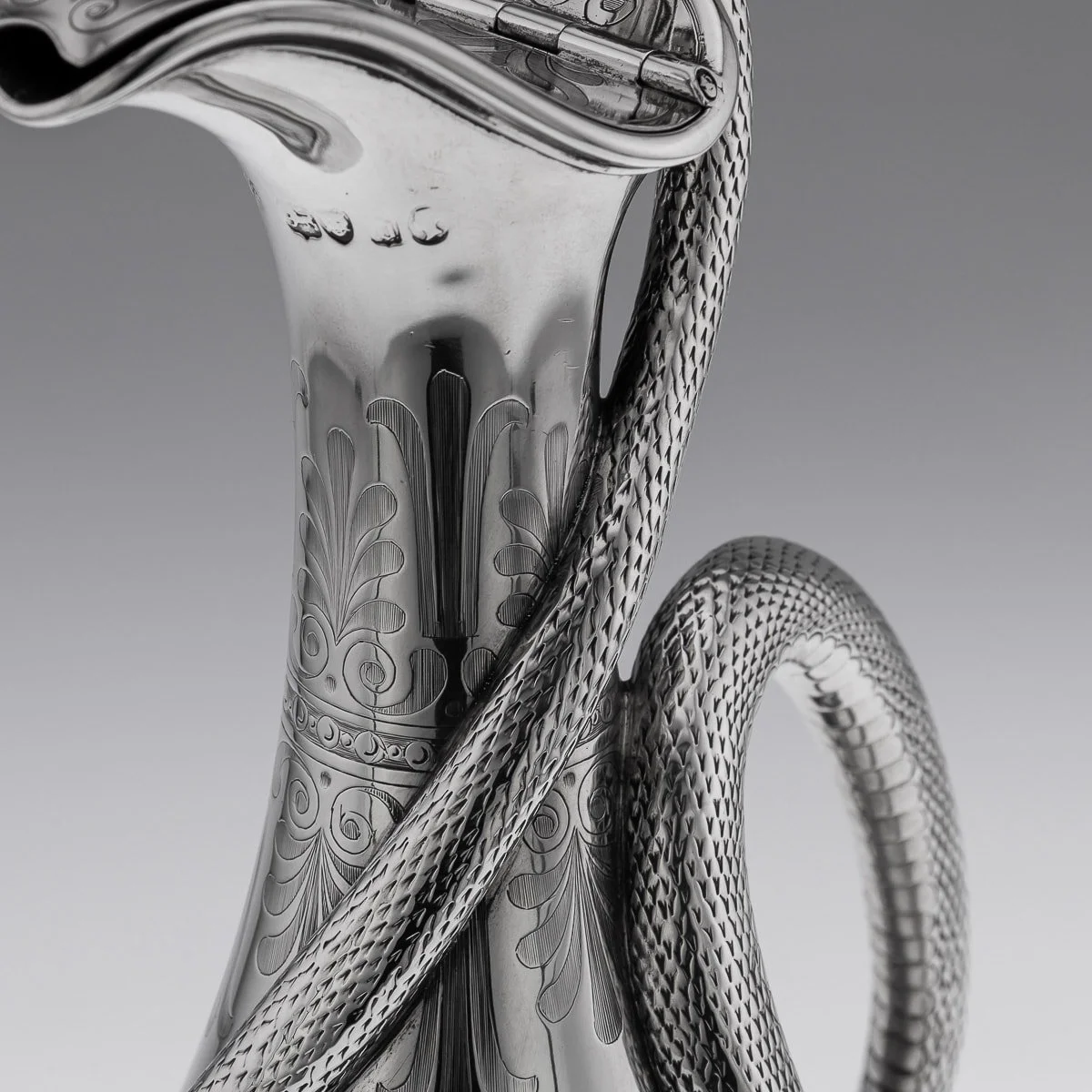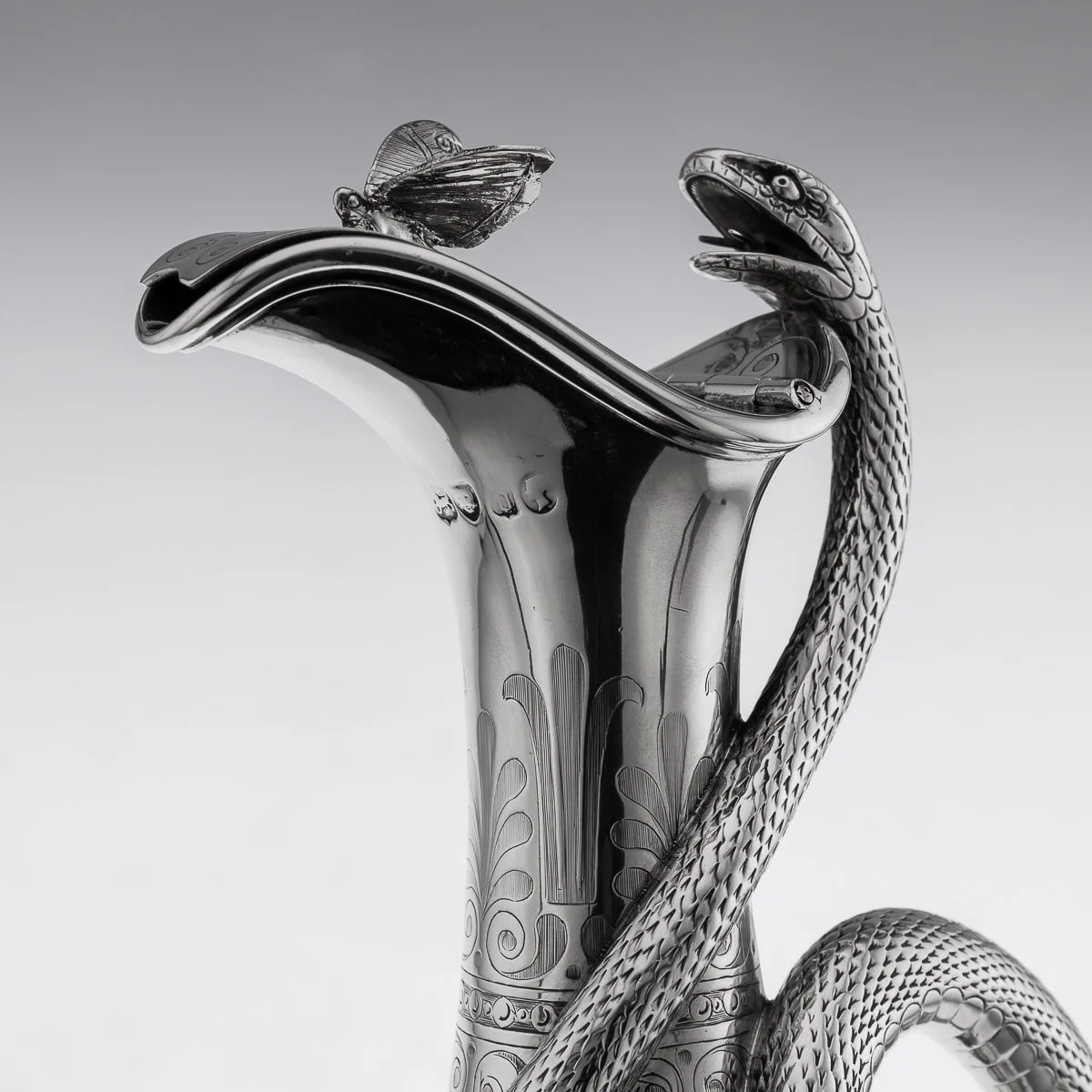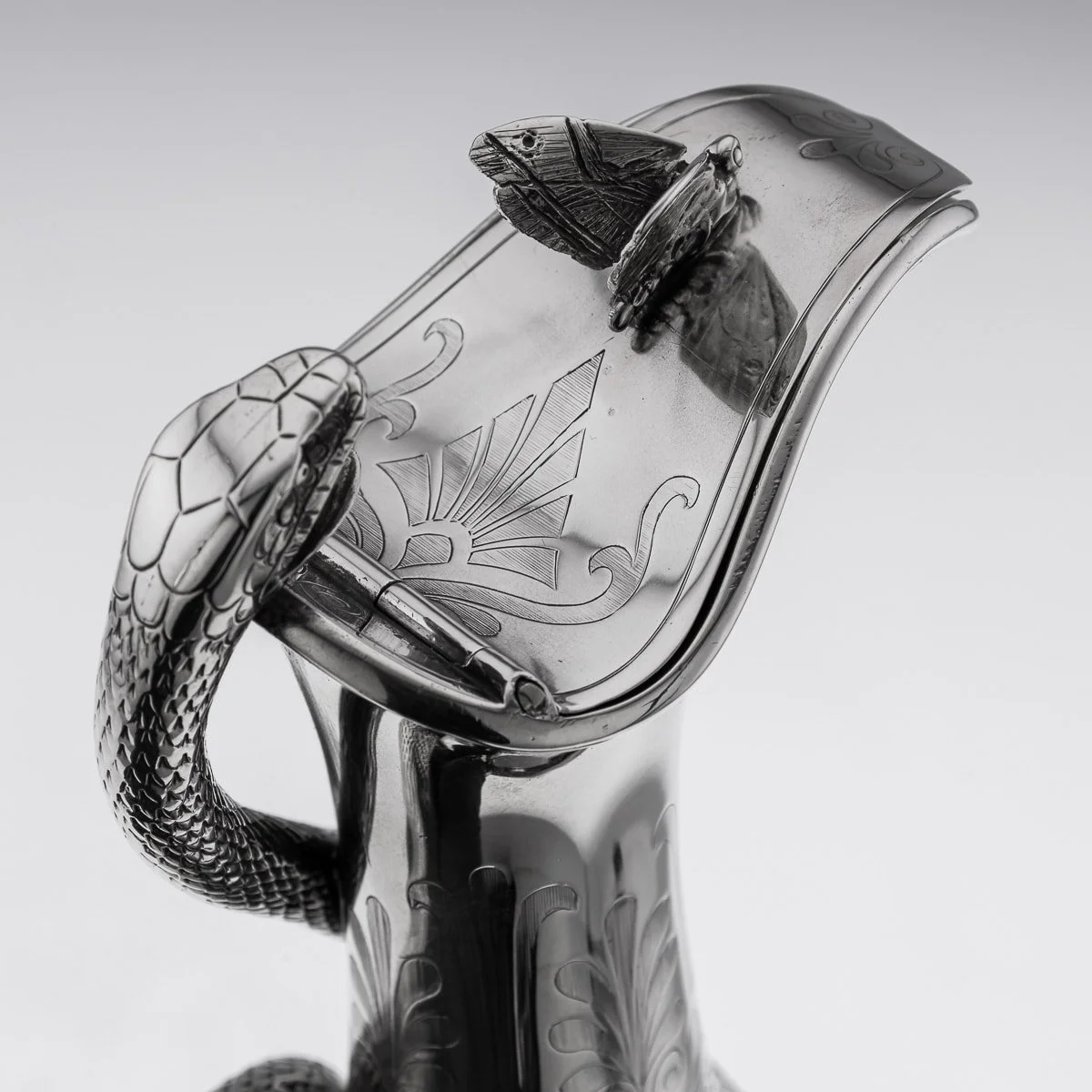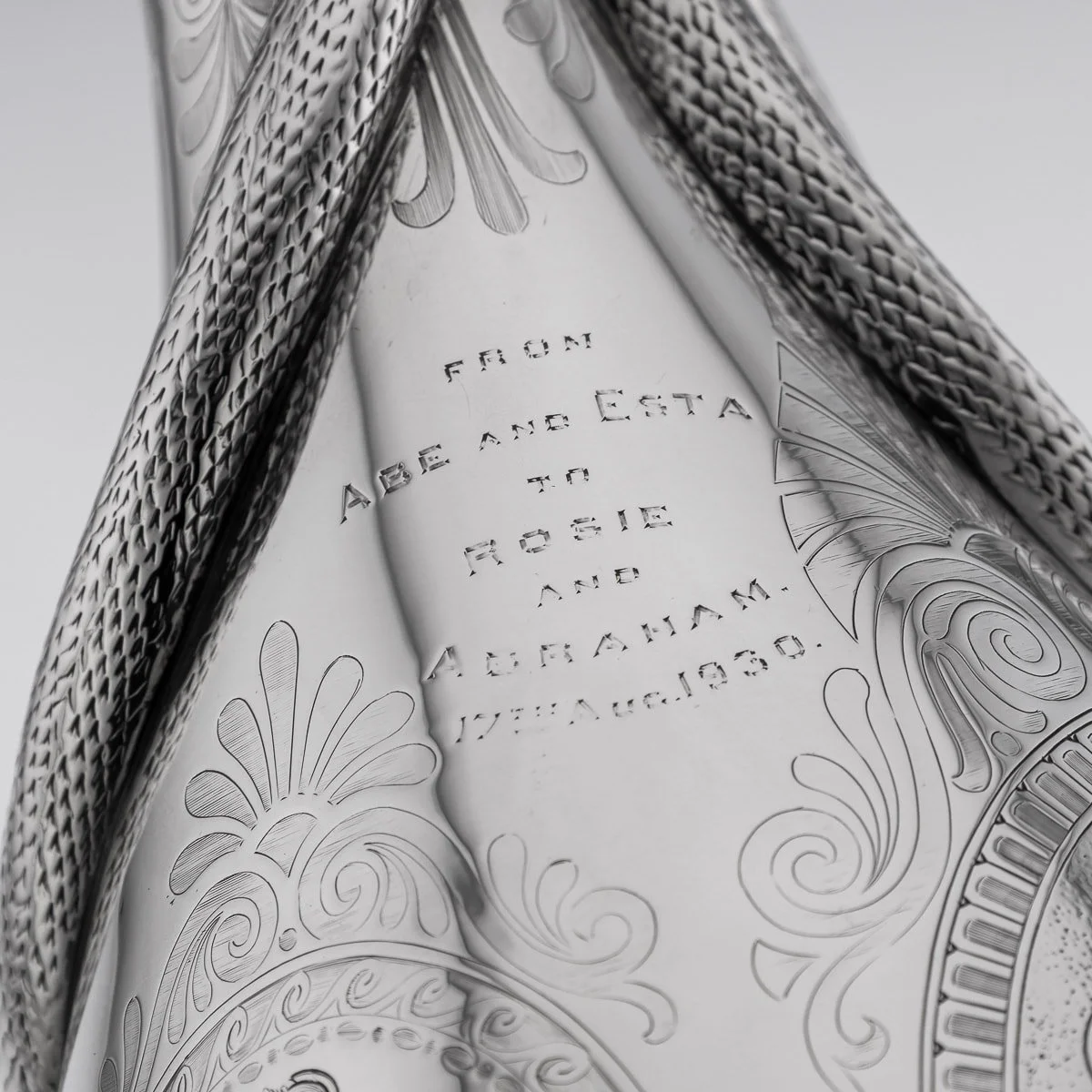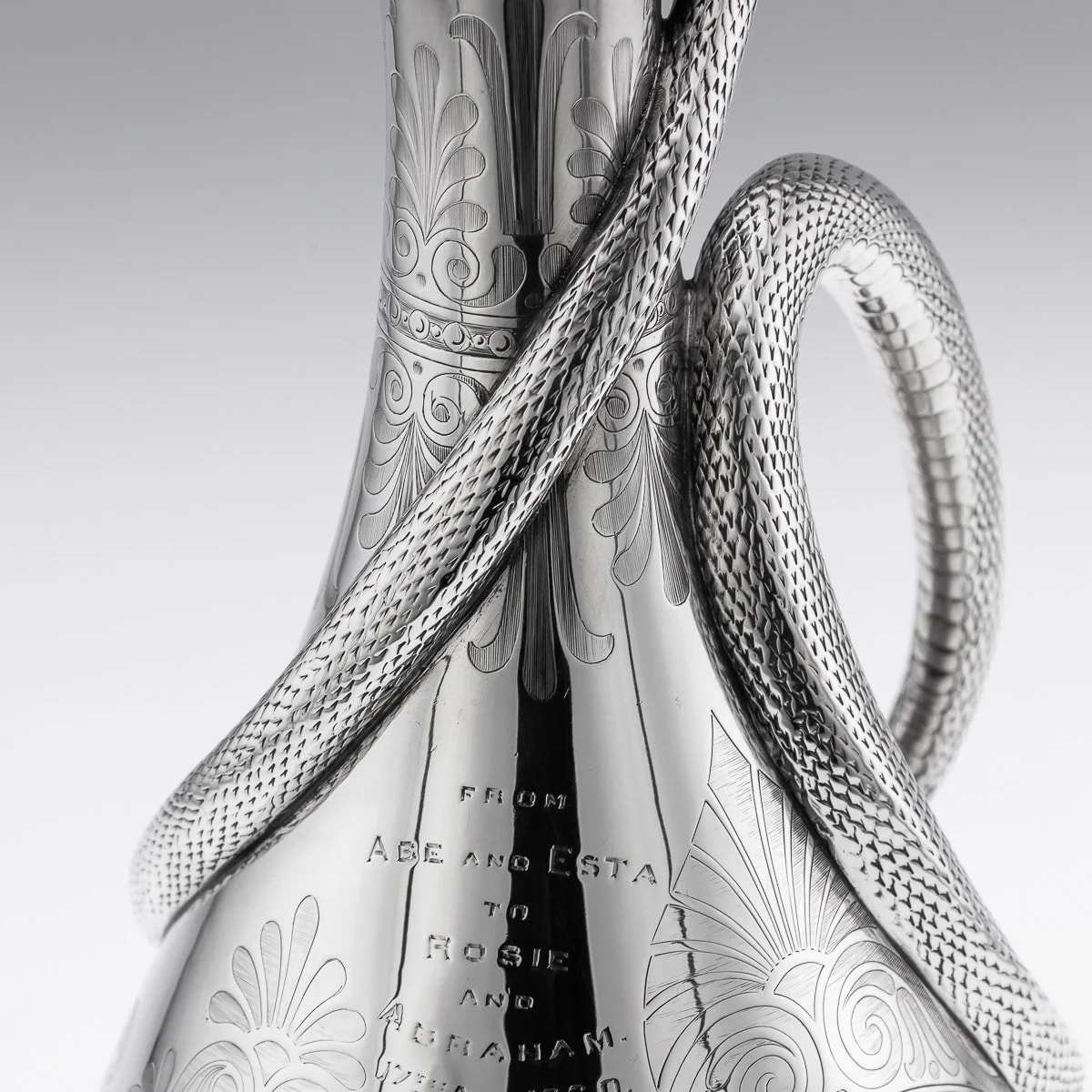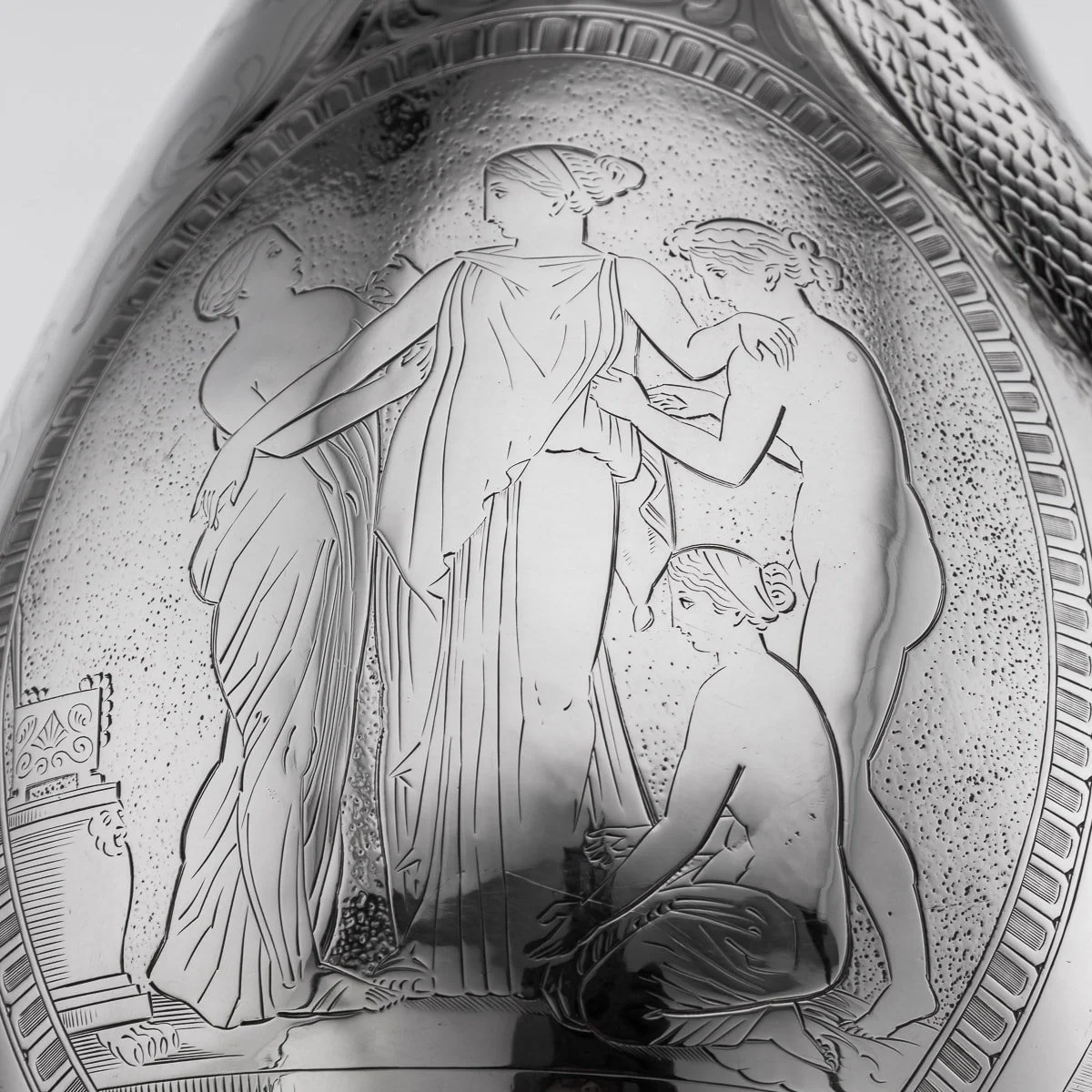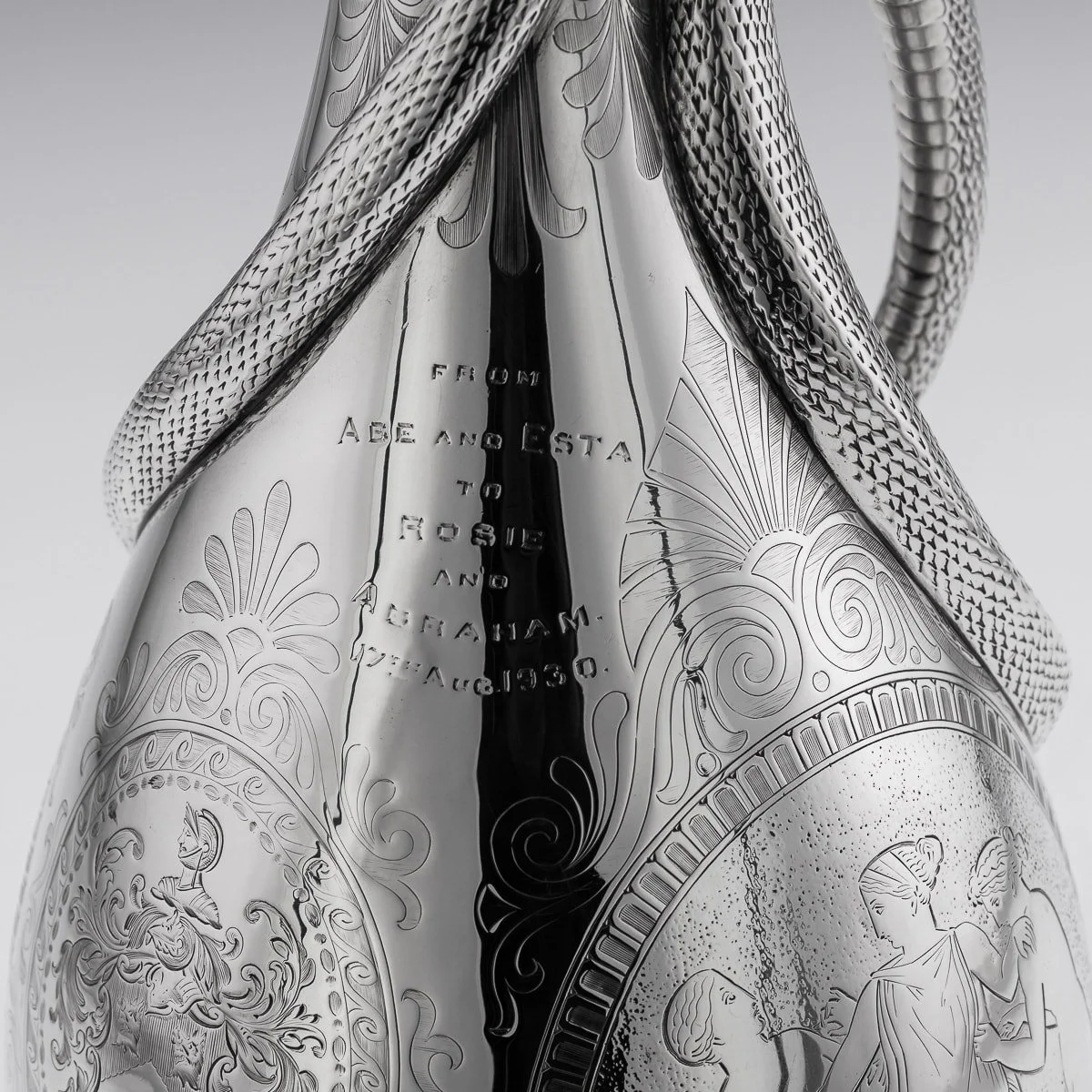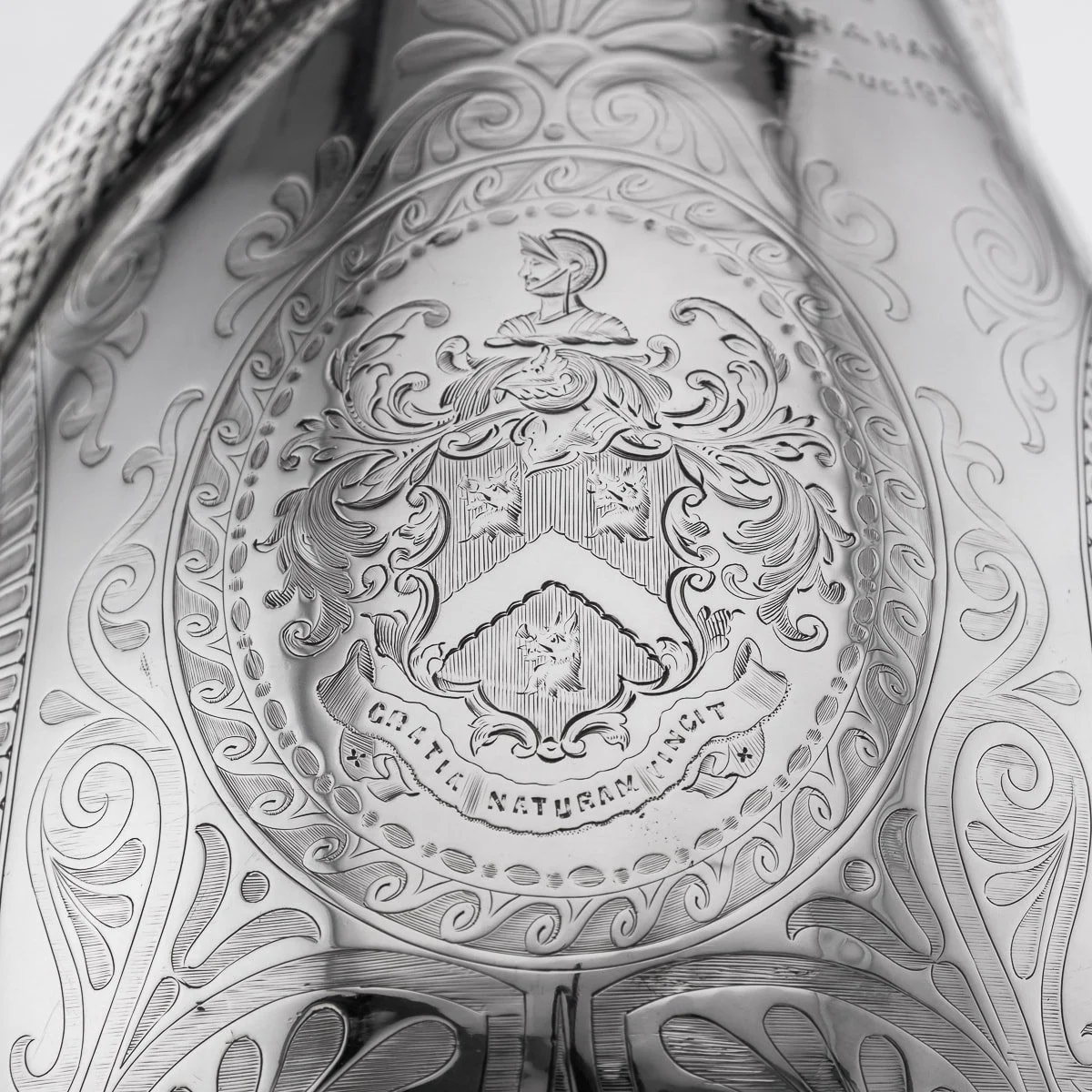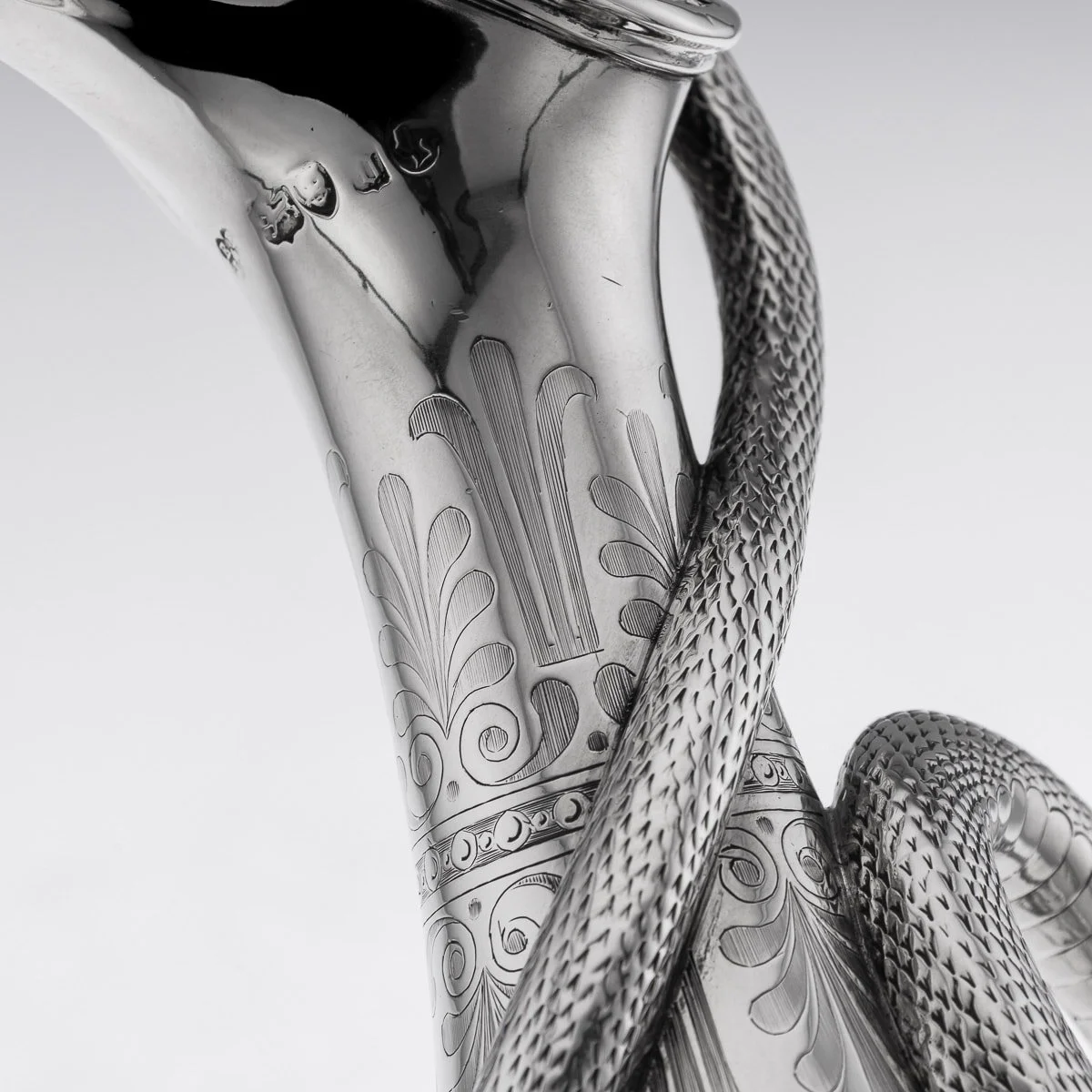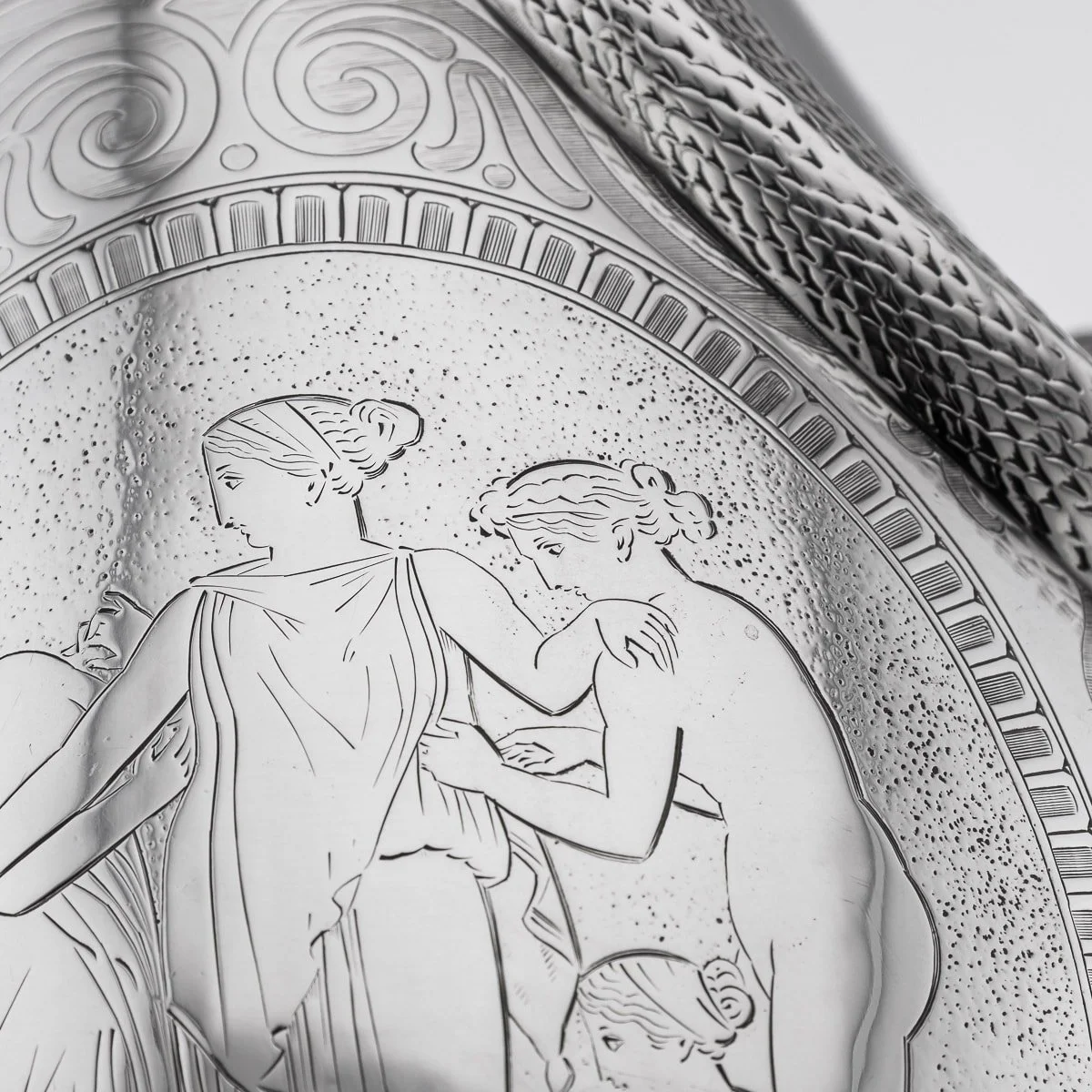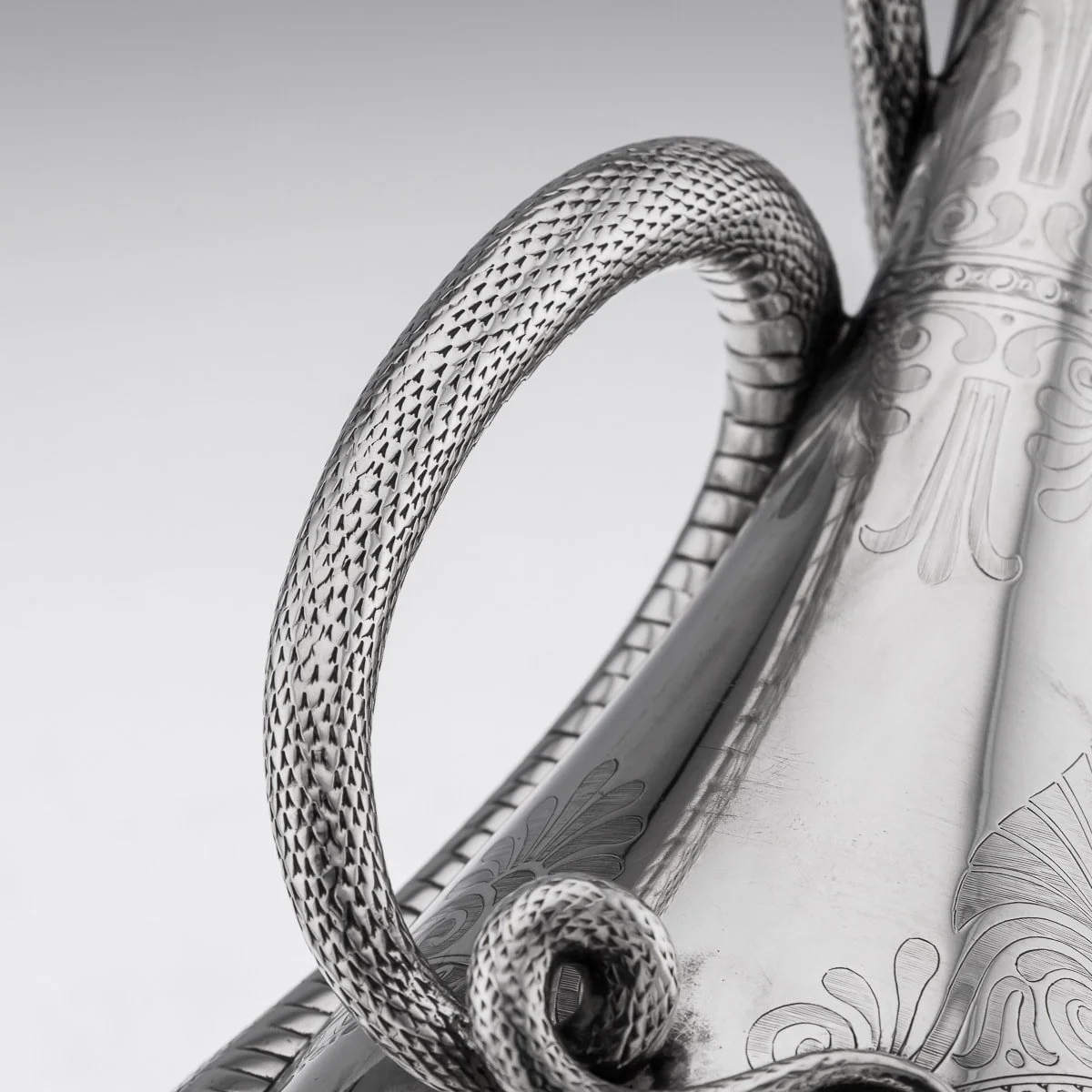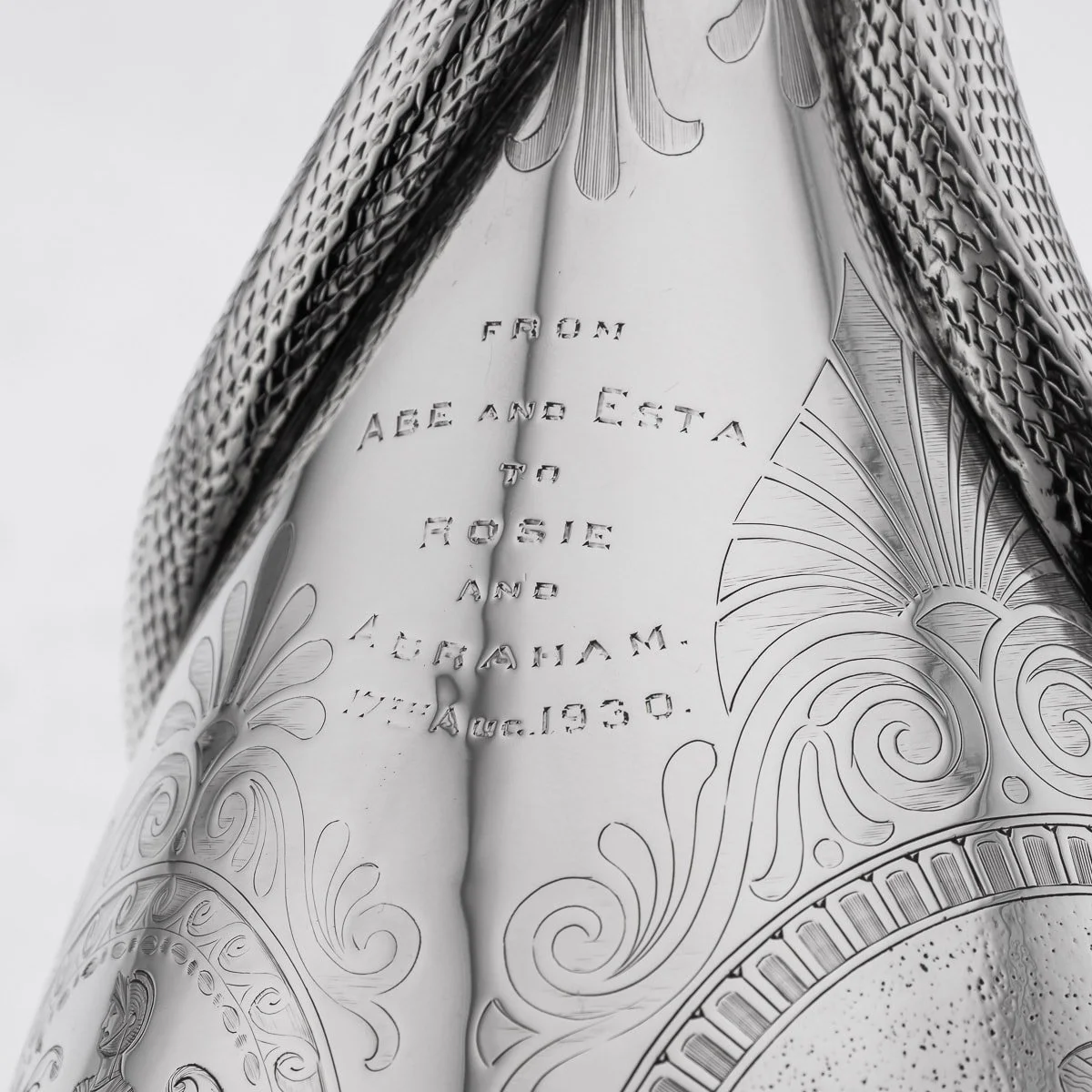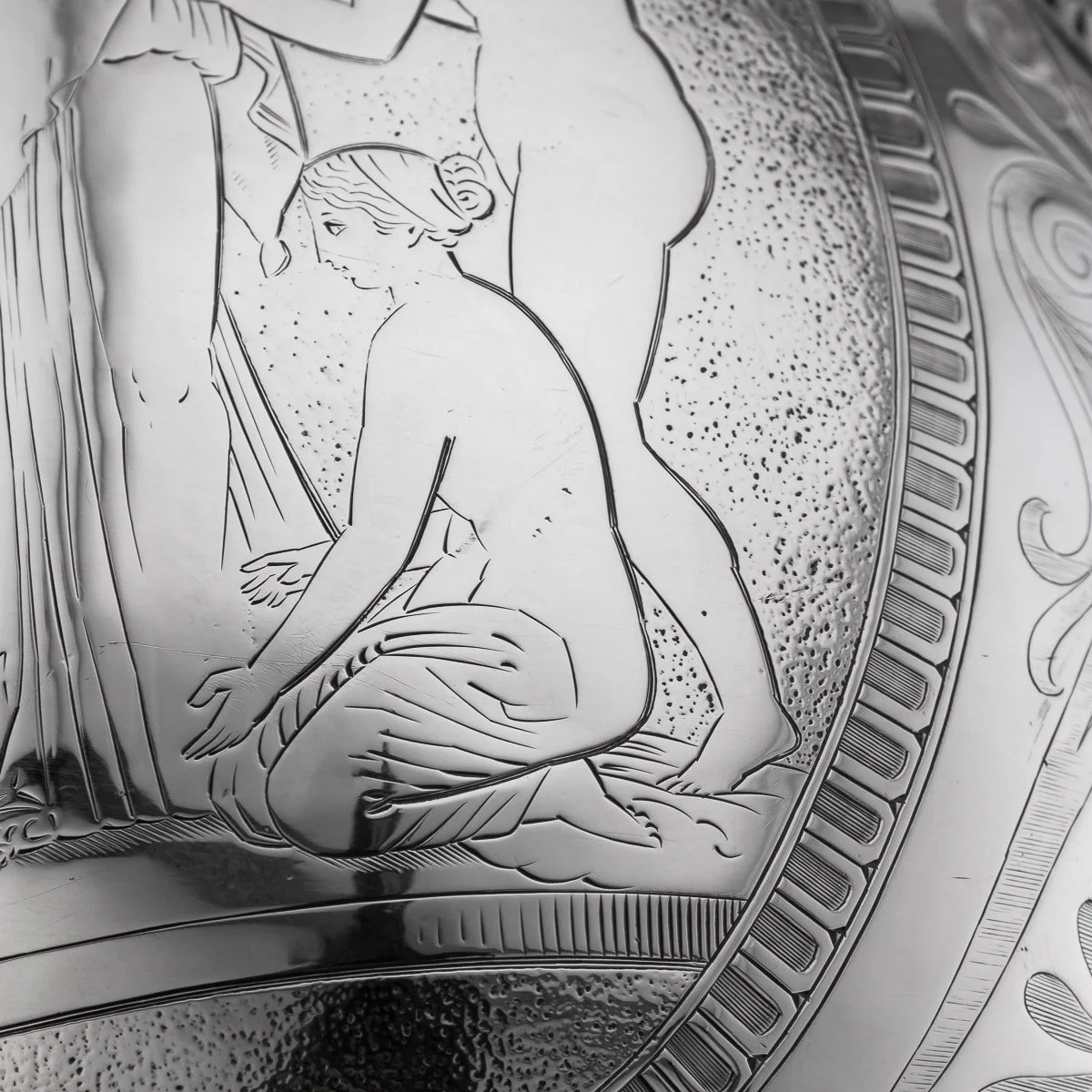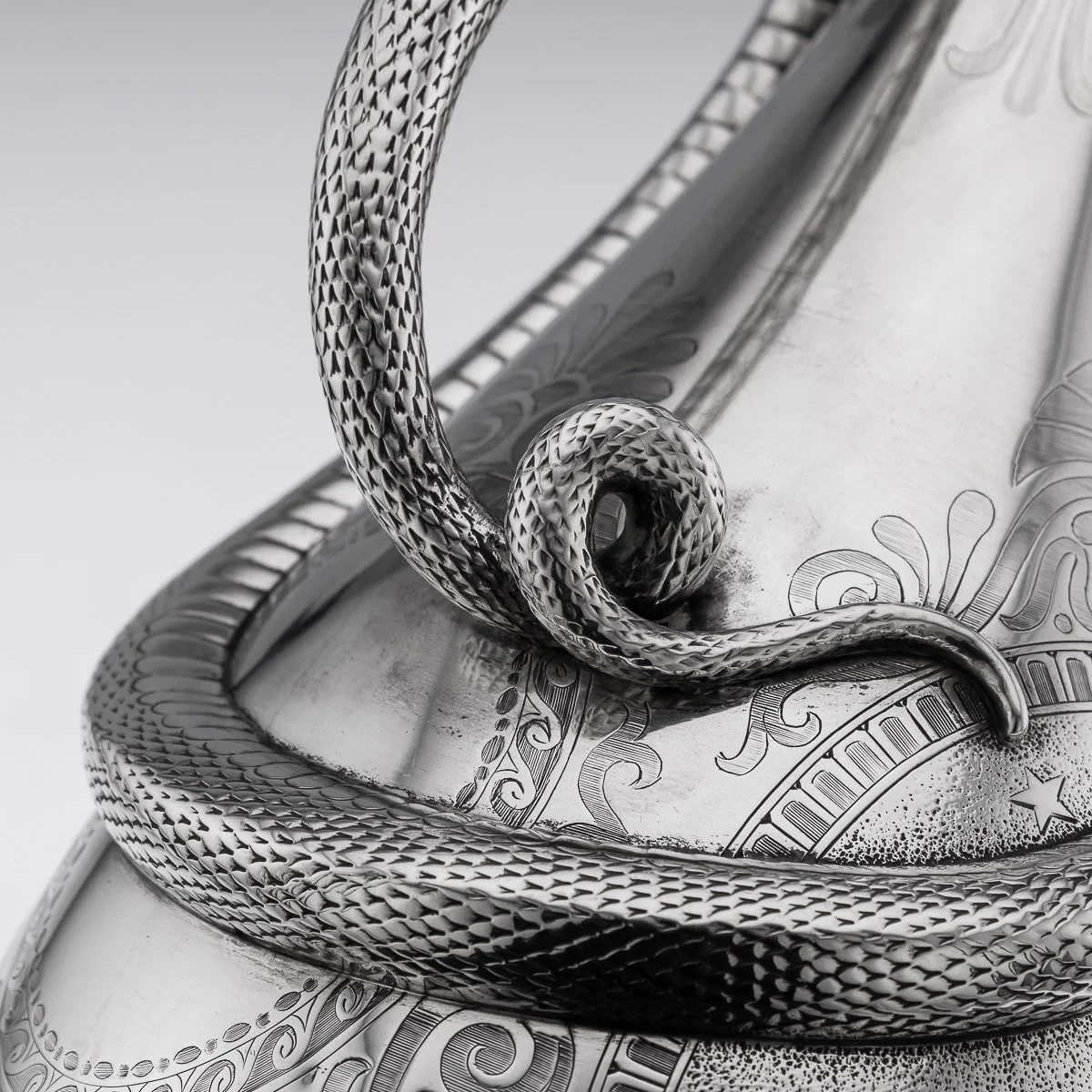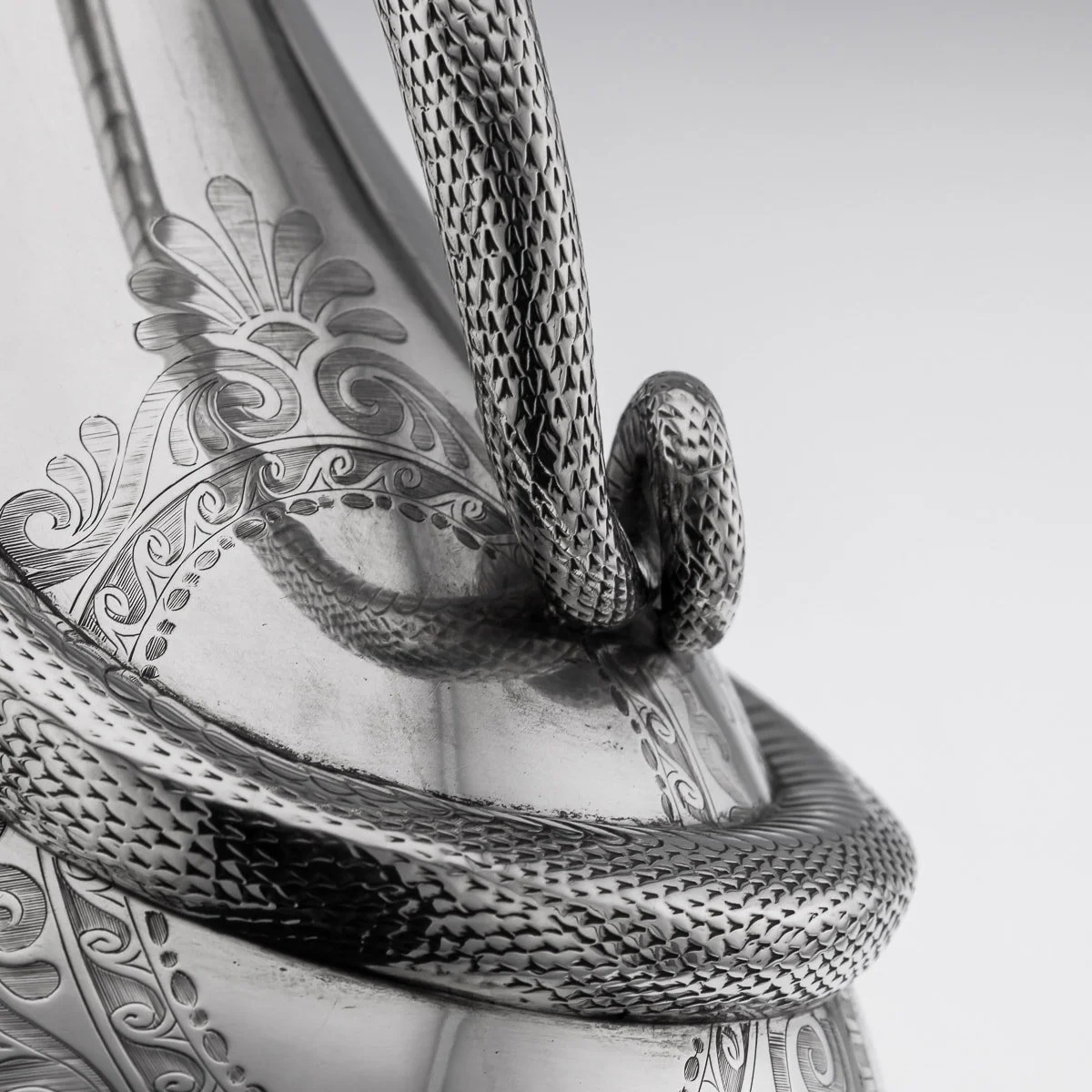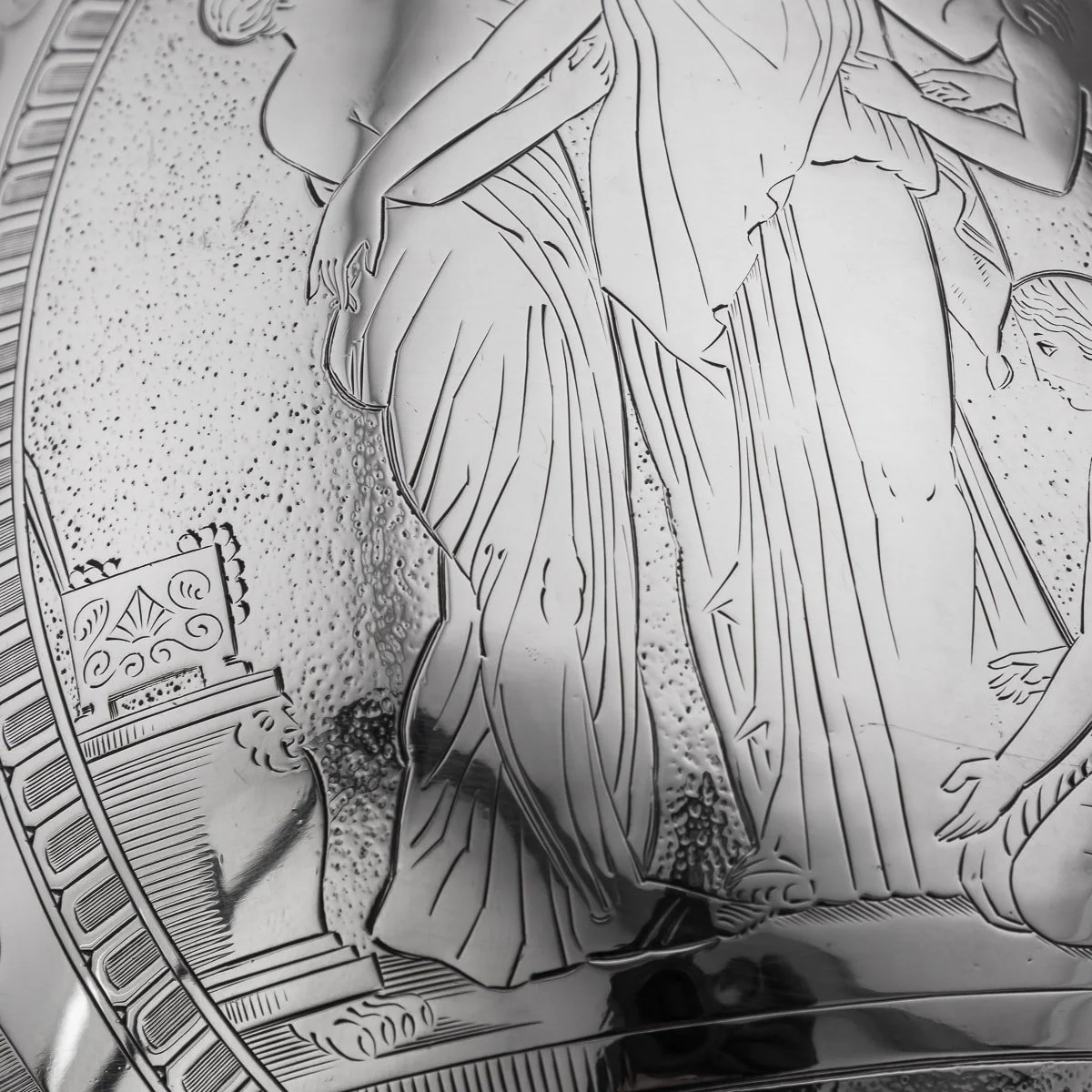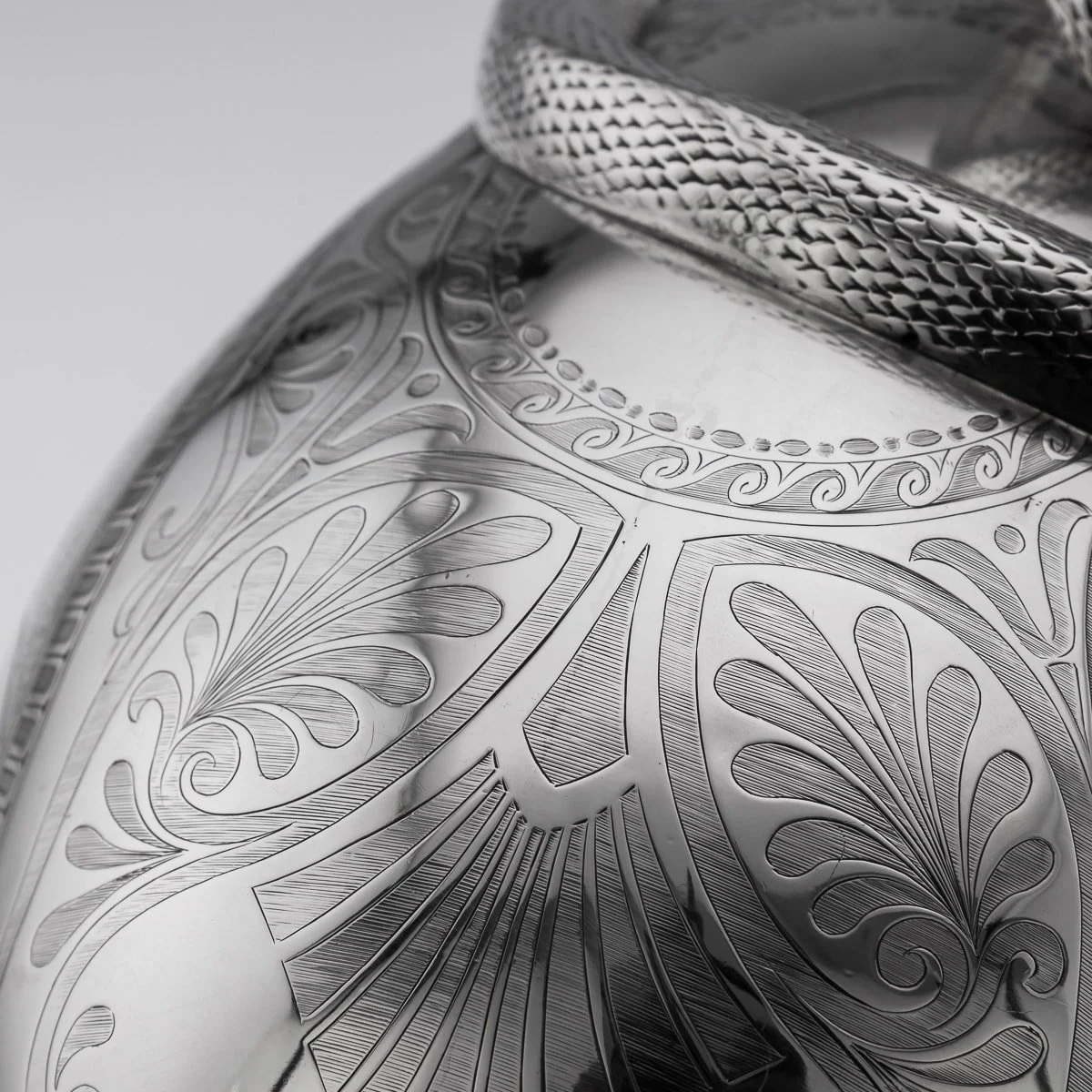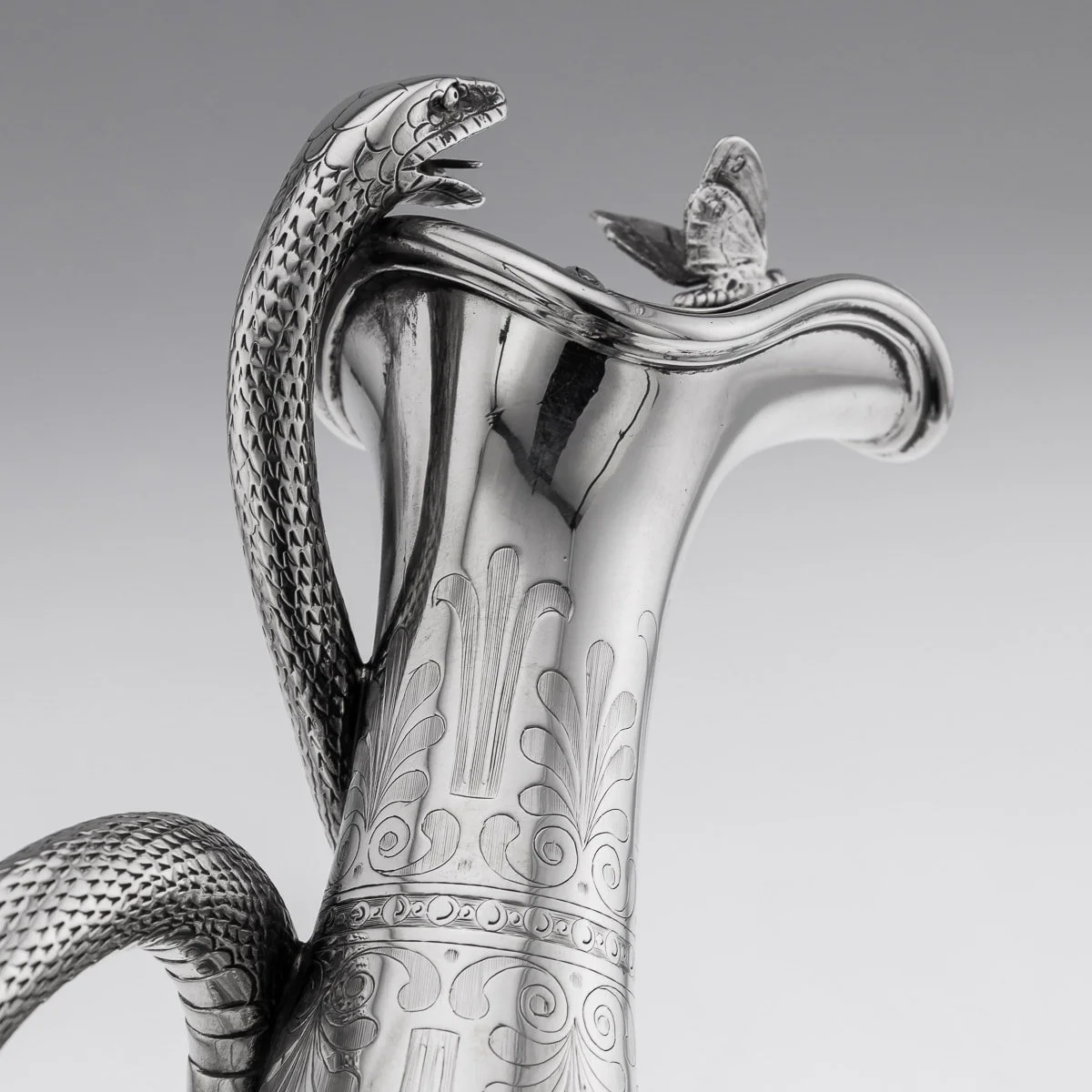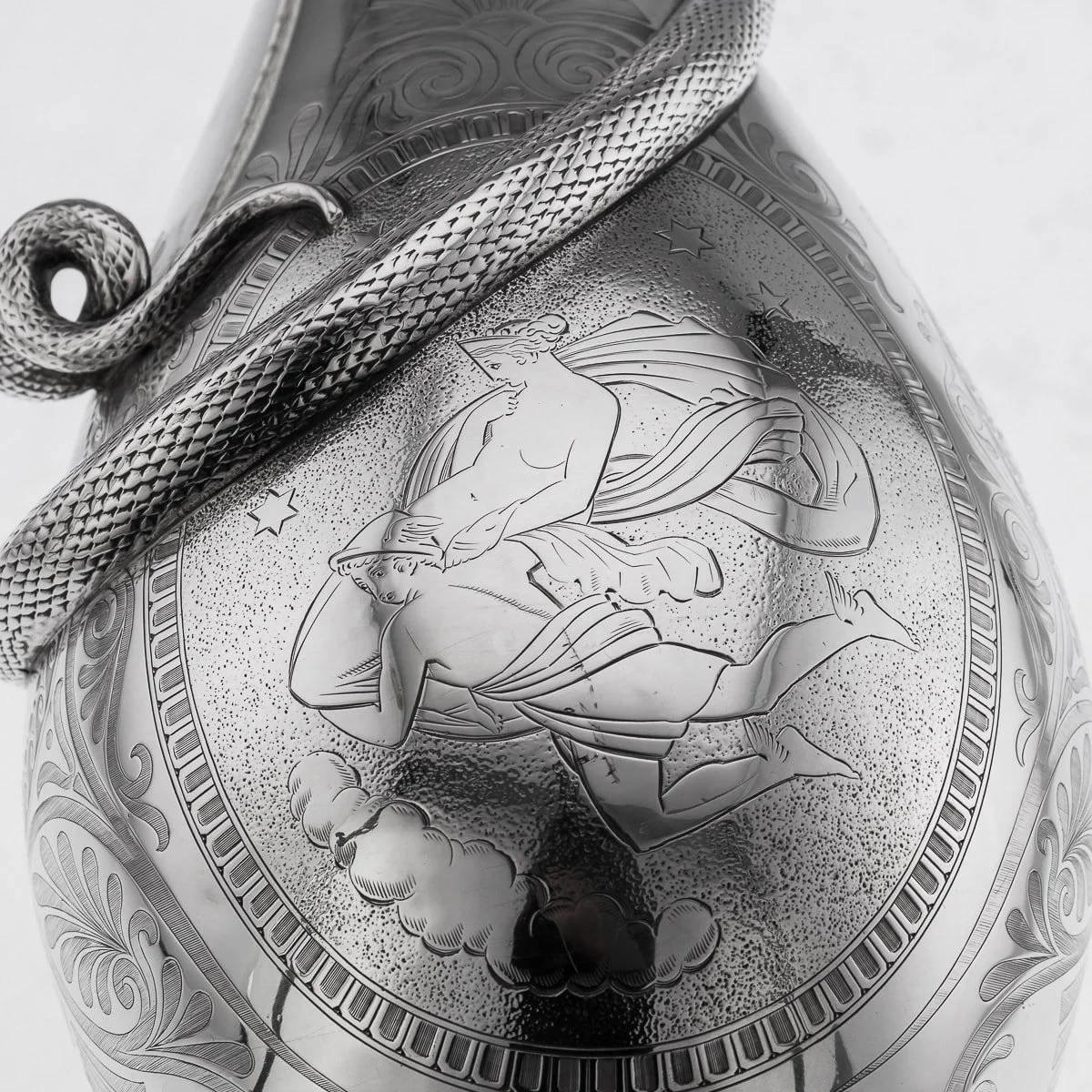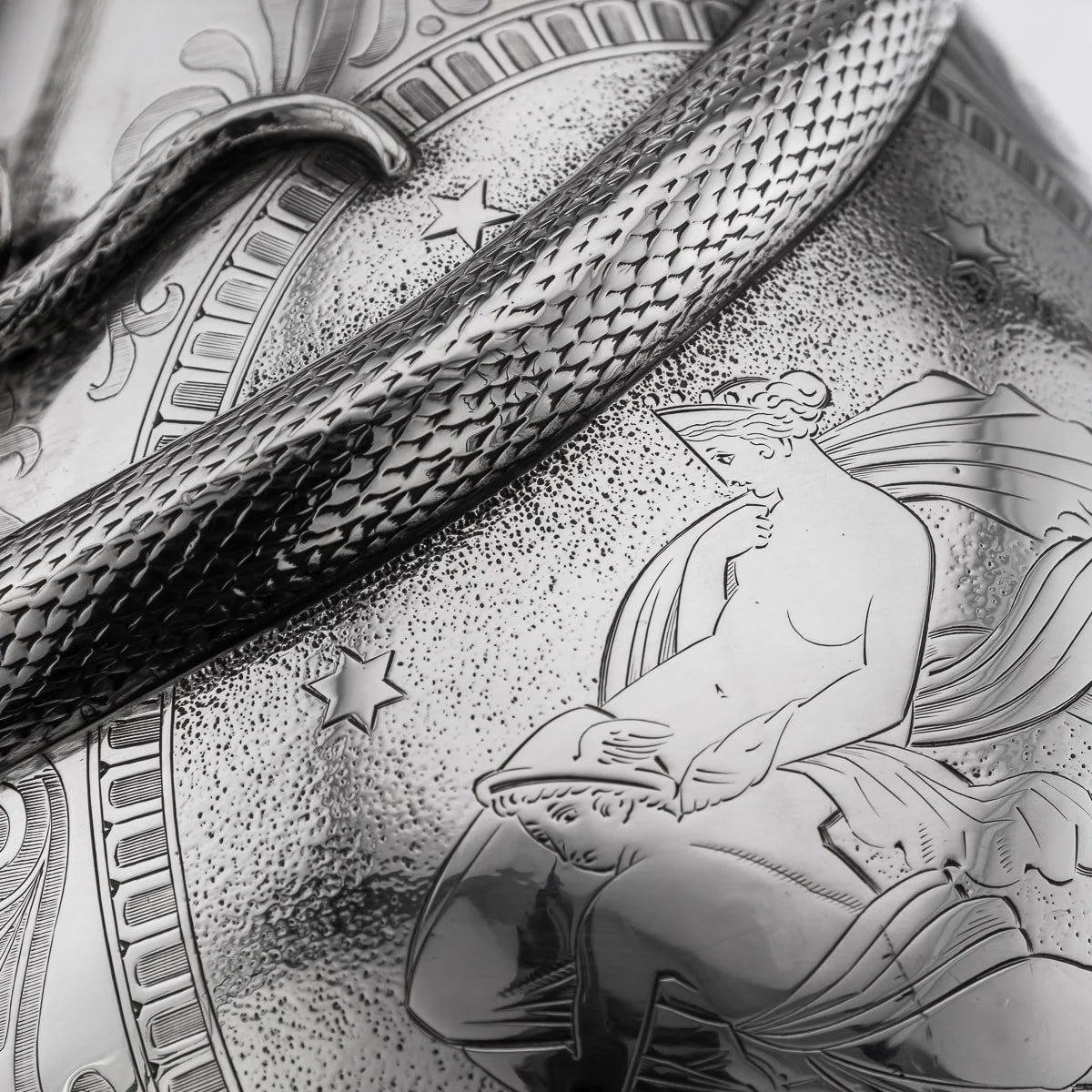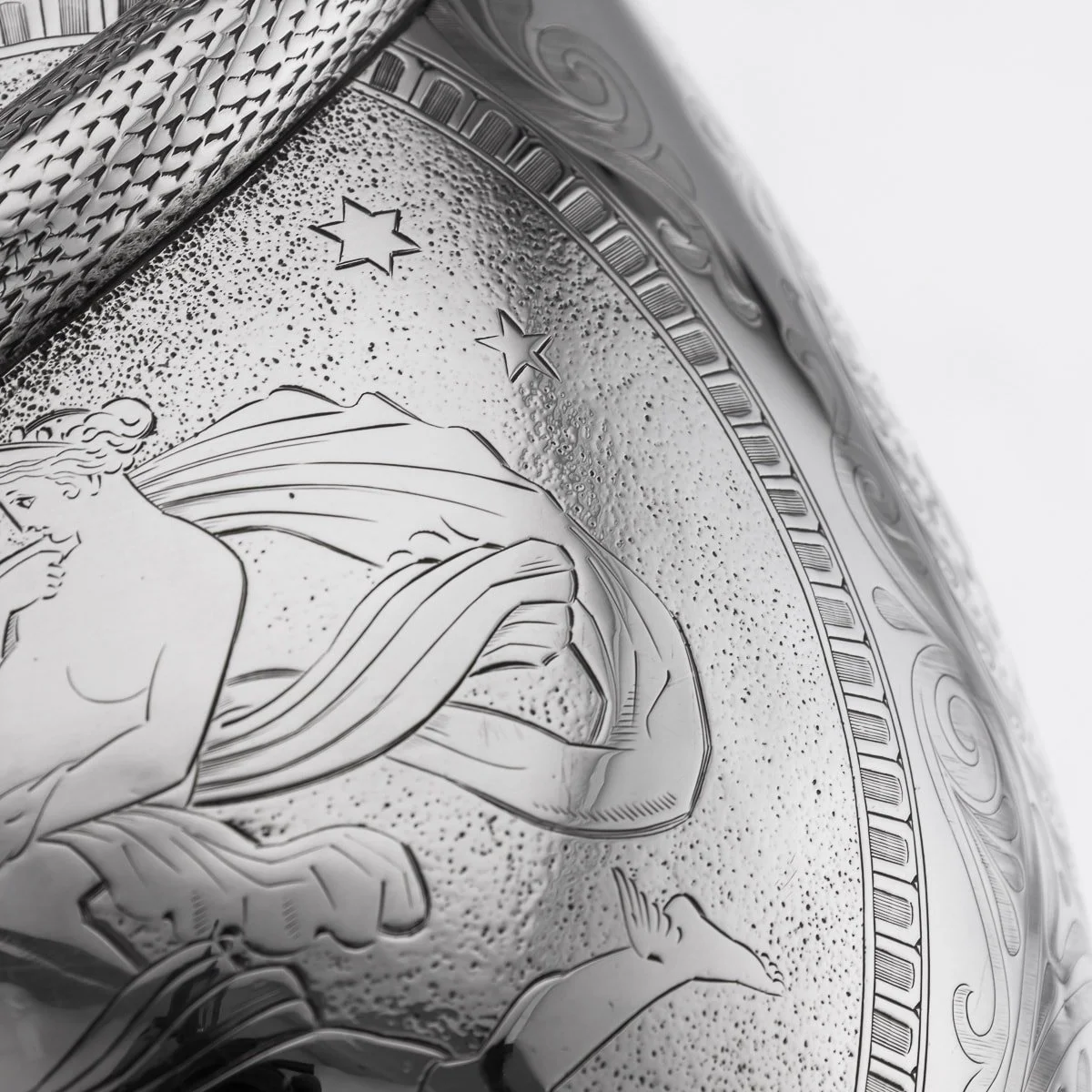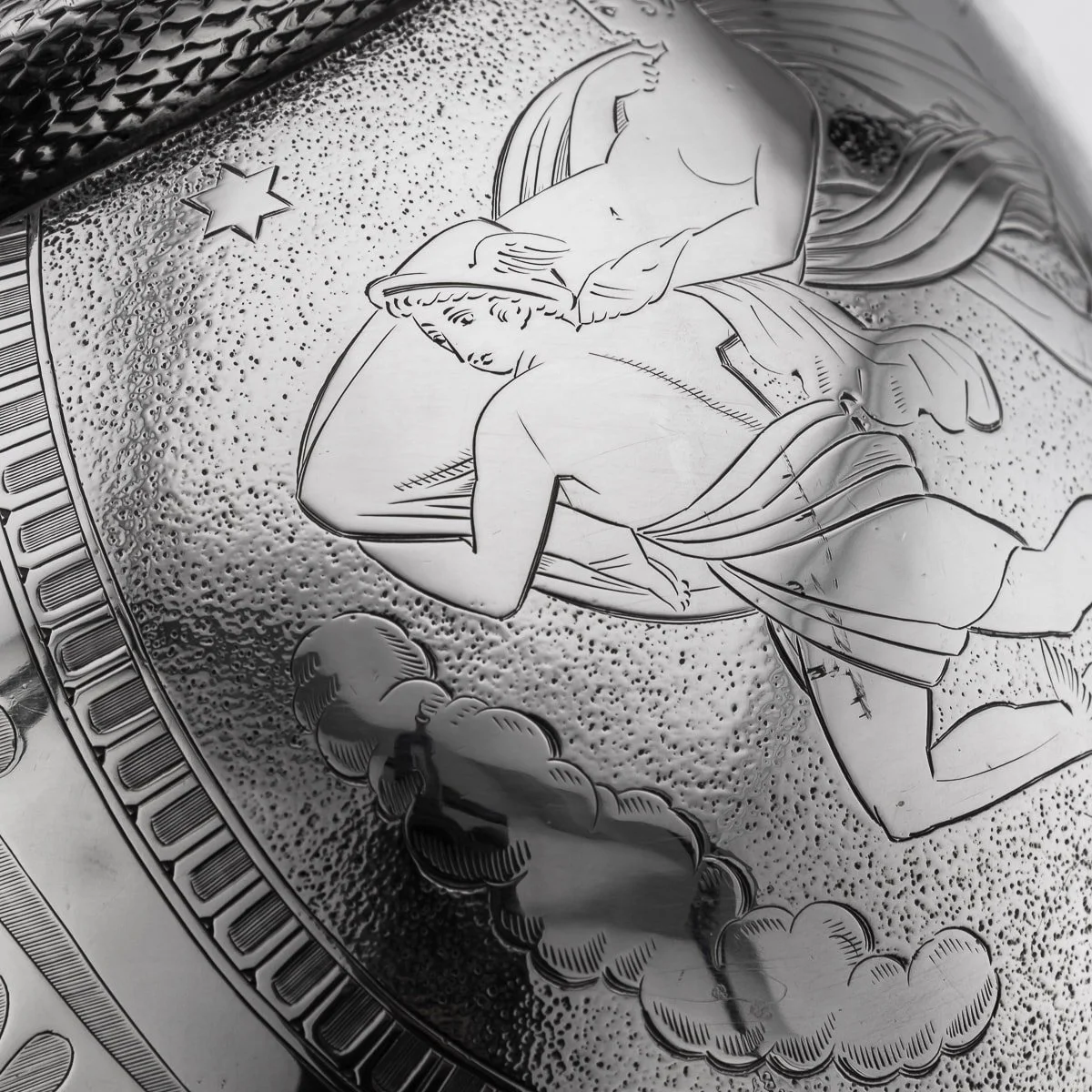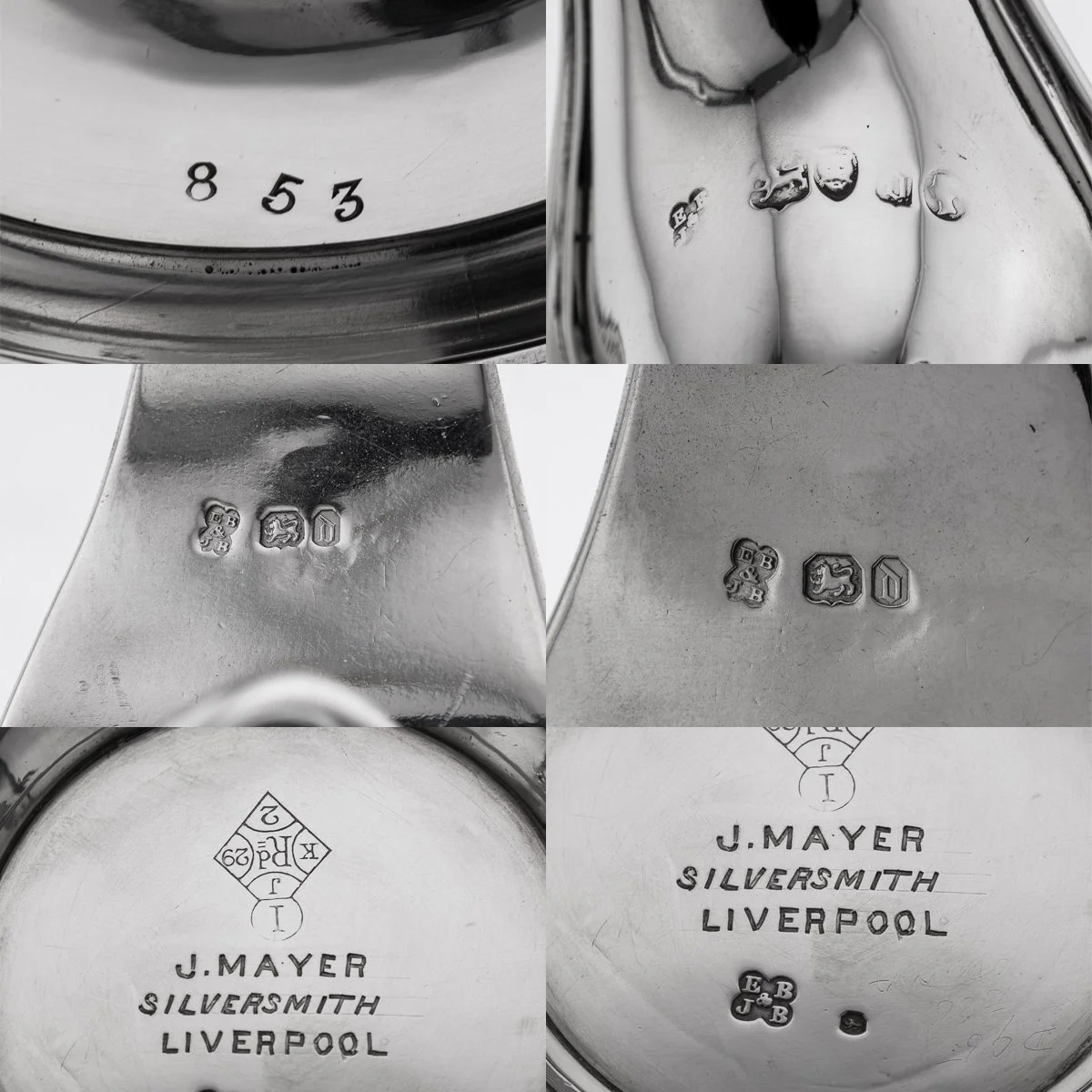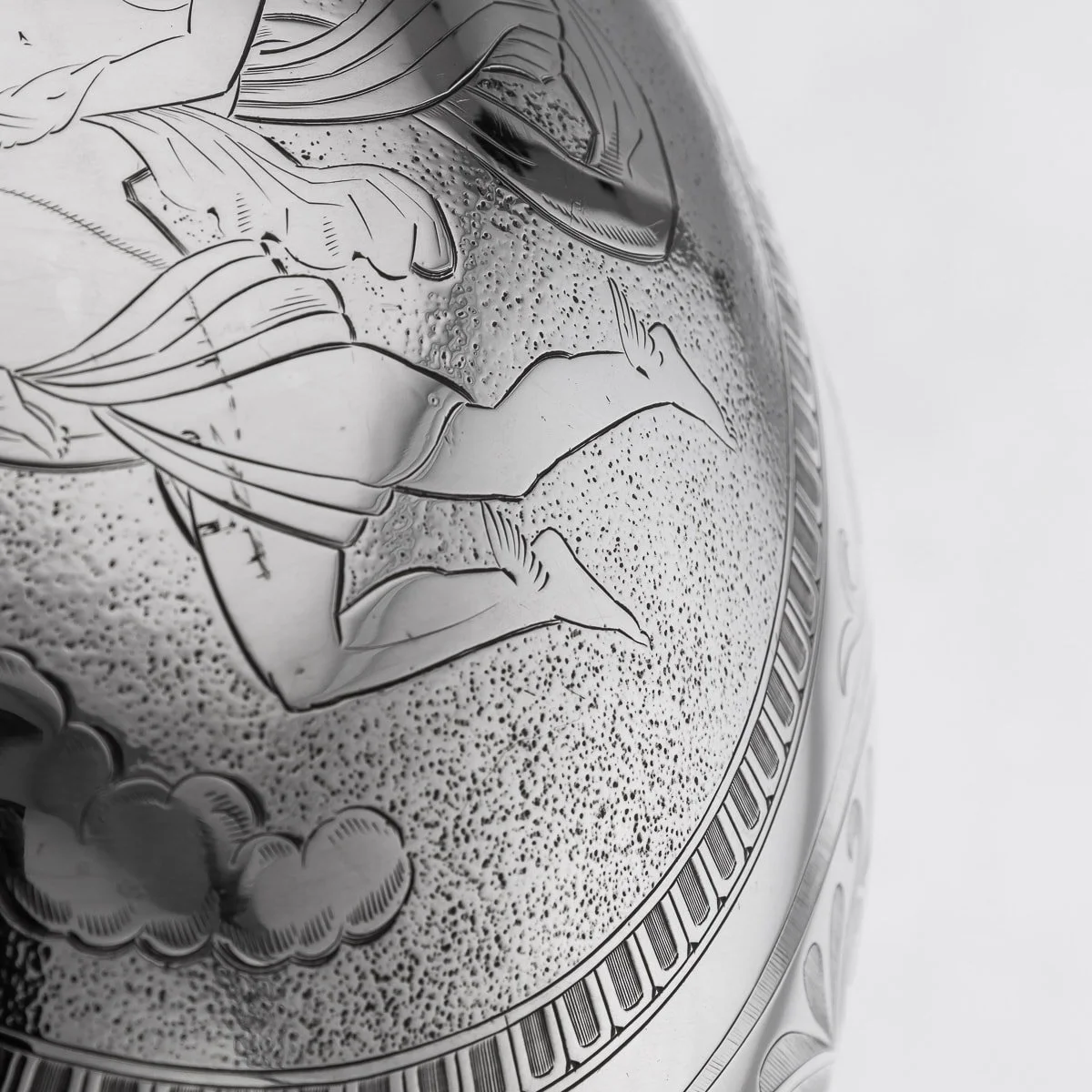ANTIQUE 19thC VICTORIAN SOLID SILVER SNAKE WINE JUG, BARNARDS c.1859
Antique mid-19th Century Victorian solid silver magnificent wine jug, of very large size, baluster form, the body engraved with Grecian turn key border, with a large oval vacant cartouche surrounded by star bursts and the body applied with a realistically modelled entwined snake handle, the hinged cover applied with a butterfly. Engraved on the body "From Abe and Esta to Rosie and Abraham, 17th Aug 1930", likely a wedding gift. Hallmarked English Silver (925 Standard), London, year 1859 (d), Maker's mark J. Mayer Silversmith, Liverpool. Also marked E&B J&B into a quatrefoil (Edward Barnard & Sons Ltd).
Reference Number: C9991
Antique mid-19th Century Victorian solid silver magnificent wine jug, of very large size, baluster form, the body engraved with Grecian turn key border, with a large oval vacant cartouche surrounded by star bursts and the body applied with a realistically modelled entwined snake handle, the hinged cover applied with a butterfly. Engraved on the body "From Abe and Esta to Rosie and Abraham, 17th Aug 1930", likely a wedding gift. Hallmarked English Silver (925 Standard), London, year 1859 (d), Maker's mark J. Mayer Silversmith, Liverpool. Also marked E&B J&B into a quatrefoil (Edward Barnard & Sons Ltd).
Reference Number: C9991
Antique mid-19th Century Victorian solid silver magnificent wine jug, of very large size, baluster form, the body engraved with Grecian turn key border, with a large oval vacant cartouche surrounded by star bursts and the body applied with a realistically modelled entwined snake handle, the hinged cover applied with a butterfly. Engraved on the body "From Abe and Esta to Rosie and Abraham, 17th Aug 1930", likely a wedding gift. Hallmarked English Silver (925 Standard), London, year 1859 (d), Maker's mark J. Mayer Silversmith, Liverpool. Also marked E&B J&B into a quatrefoil (Edward Barnard & Sons Ltd).
Reference Number: C9991
DESCRIPTION
Antique mid-19th Century Victorian solid silver magnificent wine jug, of very large size, baluster form, the body engraved with Grecian turn key border, with a large oval vacant cartouche surrounded by star bursts and the body applied with a realistically modelled entwined snake handle, the hinged cover applied with a butterfly. Engraved on the body "From Abe and Esta to Rosie and Abraham, 17th Aug 1930", showing this as a gifted item most likely for a wedding or ceremony. Hallmarked English Silver (925 Standard), London, year 1859 (d), Maker's mark J. Mayer Silversmith, Liverpool. Also marked E&B J&B into a quatrefoil (Edward Barnard & Sons Ltd).
Edward Barnard & Sons, often referred to as simply Barnards, is one of the most recognizable British silversmiths. Along with the ultimately high quality and finesse of their pieces, the company is believed to be the oldest manufacturing silversmith in the whole world. The firm is best known for the creation of the Lily font, which has been used in the christening ceremonies of British Royal family members.
One of the world’s oldest silversmiths, the company was founded in the 2nd part of the 17th century. Its origins date back to the 1680s, when Antony Nelme established a silversmithing firm at Ave Maria Lane, London. After Antony’s death in 1722, his son Francis Nelme followed in his father’s footsteps and kept running the firm until 1739, when the upcoming manager, Thomas Whipham, took over the business. After Whipham’s death in 1766, the partnership between his son, Thomas Whipham jn., and Charles Wright appeared. In 1775, Whipham left the company, and in 1786, Charles Wright merged it with the silversmith Thomas Chawner and his son Henry Chawner, who had a workshop nearby. It was Edward Barnard, Thomas Chawner’s apprentice, who became the company's foreman after the merger. That is when the company got a new name.
The firm relocated to new industrial premises in Angel Street, London, in 1838, and then to Fetter Lane, London, in 1898. It was a skilled and informed exponent of the Neoclassical and revived Rococo styles, and subsequently relied mostly on a knowledge of historicist form and decoration rather than creating modern twentieth-century forms. The need for military, sports, presentation, religious, and municipal silver, of which Barnard's was a major manufacturer, necessitated this knowledge of historical styles.
Bridge and Rundell, Elkington & Co., Garrard & Co., and the Goldsmiths' Company were only a few of the company's clients. In 1910, Edward Barnard & Sons was incorporated as a limited company. A factory on Northampton Street, Birmingham, was held by the business from 1914 until 1924. The firm temporarily relocated to Stonecutter Street, Farringdon Road, in 1919 before settling in Hatton Garden in 1920. In 1977, Edward Barnard & Sons Ltd merged with Padgett & Braham Ltd, and in 1991, the company relocated to Shacklewell Road in Hackney. In 2003, the company went out of business.
CONDITION
In Great Condition - Wear expected with age. Please refer to photographs.
SIZE
Height: 34 cm // 13.39 in
Width: 13 cm // 5.12 in
Depth: 12 cm // 4.72 in
Weight: 820g

